
One of the world’s leading publishers of printed classical and educational music.

William Walton Catalogue
- Text
- Walton
16. Valse (‘Daisy and
16. Valse (‘Daisy and Lily’) The estate of the late Mr Francis Sitwell. First performance: 27 April 1926 17. Jodelling Song (‘We bear velvet cream’) British Library: MS Mus.1565. Bequeathed to the BL in 2004 by the American actress Irene Worth. A note on the envelope states ‘Given to Irene Worth by William Walton’. First performance: 12 June 1926 18. Scotch Rhapsody (‘Do not take a bath in Jordan, Gordon’) HRHRC. First performance: 27 April 1926 19. Popular Song (‘Lily O’Grady’) HRHRC. First performance: 27 November 1927 or 14 September 1928 20. Foxtrot (‘Old Sir Faulk’) Two versions: British Library. Add. MS 64120. HRHRC. First performance: 12 June 1923 21. Sir Beelzebub (‘When Sir Beelzebub’) HRHRC. First performance: 24 January 1922 Instrumentation: fl (+ picc), cl (+ bcl), a sax [from June 1923 onwards], tpt, perc (1: tri, cym, cast, Chinese block, sd, tamb, jingles), vc, reciter A note in the published score says: ‘If the violoncello part is too arduous for one player, the part has also been distributed for two players. This alternative version may in any case be found preferable where two players are available’. (For details about the composition of the original ensemble for Façade, see Neil Ritchie, ‘Footnote to Façade’, The Book Collector 45/2 (summer 1996), 261–2, n. 557.) Dedication: To Constant Lambert (in the 1951 first publication) Duration: 40 minutes Performance History Chronological list of early and significant performances. 24 January 1922: first private performance, London, 2 Carlyle Square. Musicians: unable to trace (although Angus Morrison told the present author that the same players might have played at both the private and first public performances—see below). Introduction by Osbert Sitwell; reciter: Edith Sitwell; conductor: William Walton. Drop curtain by Frank Dobson (also used at the second private performance). The titles and poems are listed as follows in two surviving undated typed programmes believed to have been used for the performance (HRHRC): 1. Overture; 2. Madame Mouse Trots (Dame Souris trotte); 3. The octogenarian; 4. Aubade; 5. The Wind’s C12 Façade 7 Bastinado; 6. Said King Pompey; 7. Interlude; 8. Jumbo’s Lullaby; 9. Small Talk (1), Small Talk (2); 10. Rose Castles; 11. Introduction and Hornpipe; 12. Long Steel Grass; 13. When Sir Beelzebub; 14. Switchback; 15. Bank Holiday (1), Bank Holiday (2); 16. Springing Jack; 17. En Famille; 18. Mariner Man (Presto) 7 February 1922: second private performance, London, Mrs Robert Mathias’s house, Montagu Square. This may have been a shorter recital amongst the earliest ‘trial’ performances, as a programme (discovered by Neil Ritchie), sold at Sotheby’s, Dover, on 23 July 1987 (Lot 184) reveals (it is described as ‘similar in appearance and content, but there are seven fewer poems, and they are numbered differently’). The performance would have just pre-dated the publication by the Favil Press of Edith Sitwell’s poems. This would agree with Edwin Evans’s description (MT 85, 1944, p. 331): ‘It was the following year that it [Façade] was offered as a complete “entertainment”, first in sundry Mayfair drawing-rooms and then at the Aeolian Hall.’ It is also possible that Mrs Belloc Lowndes, novelist and sister of Hilaire Belloc, may have offered to play hostess to a further private performance (see Stephen Lloyd, William Walton: Music of Fire, Woodbridge: Boydell, 36). 1. Overture; 2. (a) ‘Dame Souris trotte . . .’ (b) The Octogenarian; 3. (a) Aubade (b) The Wind’s Bastinado (c) Said King Pompey; 4. Interlude; 5. (a) Jumbo’s Lullaby (b) Small Talk (c) Rose Castles; 6. (a) Introduction and Hornpipe (b) Long Steel Grass (c) When Sir Beelzebub 12 June 1923: first public performance, London, Aeolian Hall. Edith Sitwell (reciter), Robert Murchie (fl, picc), Paul Draper (cl, bcl), F. Moss (sax), Herbert Barr (tpt), Ambrose Gauntlett (vc), and Charles Bender (perc), conducted by William Walton. Curtain by Frank Dobson. Fanfare, Preface by Osbert Sitwell, Overture; 1. (a) Gardener Janus Catches a Naiad (b) Clown Argheb’s Song; 2. (a) Lullaby for Jumbo (b) Trams (c) Madam Mouse trots (d) Switchback; 3. (a) Small Talk (b) By the Lake (c) Said King Pompey; 4. (a) Serenade (instrumental) The Octogenarian (b) Herodiad’s flea (c) Through gilded trellises (d) Trio for Two Cats and a Trombone; 5. (a) The Man from a Far Countree (b) Daphne (c) Country Dance; 6. (a) Gone dry (b) Mariner Man (c) Rose Castles (d) En Famille (e) Hornpipe; 7. (a) Aubade (b) The Owl (c) Dark Song (d) Foxtrot; 8. (a) Ass Face (b) Beelzebub For perusal purposes only
8 C12 Façade Bibliography: • Tim Barringer, ‘Façades of Façade: William Walton, Visual Culture and English Modernism in the Sitwell Circle’, British Music and Modernism (1895–1960), ed. Matthew Riley (Farnham: Ashgate, 2010), 125–45, 245–6 • Richard Greene, Edith Sitwell: Avant-Garde Poet, English Genius (London: Virago, 2011), 152–7, 167–8 • John Lehmann, A Nest of Tigers: Edith, Osbert and Sacheverell Sitwell in their Times (London: Macmillan, 1968), 1–11 • R. L. Megroz, The Three Sitwells: a Biographical and Critical Study (London: Richards, 1927), 69–78 • Osbert Sitwell, Laughter in the Next Room (London: Macmillan, 1949), 168–98 • Sacheverell Sitwell, Introduction to Façade: An Entertainment (London: Oxford University Press, 1972; de-luxe edition), xiii–xv • DE, 13 June 1923, p. 7; DGr, 14 June 1923, p. 5 (Swaffer); DM, 13 June 1923, p. 7; DT, 3 June 1923, p. 6; Ev St, 13 June 1923, p. 3 (‘K.K.’); Illus Lon N, 23 June 1923, p. 1124; MGn, 13 June 1923, p. 12; MorPt, 13 June 1923, p. 10; New Age, 21 June 1923, p. 120 (H. Rootham); Ob, 17 June 1923, p. 10 (P. A. Scholes); PMGaz, 13 June 1923, p. 3 (E. Evans); Sun Exp, 17 June 1923, p. 6; Times, 14 June 1923, p. 12; Vogue, vol. 62, no. 13 (July 1923), pp. 36, 70 (G. Cumberland) 27 April 1926: London, New Chenil Galleries, Chelsea. Edith Sitwell, Neil Porter, and Constant Lambert (reciters), B. Macrae (fl, picc), Paul Draper (cl, bcl), A. Cox (sax), Herbert Barr (tpt), Ambrose Gauntlett (vc), Charles Bender (perc), conducted by William Walton. Curtain by Frank Dobson. (see NPG: The Sitwells, 1994). Fanfare Group A: Hornpipe, En Famille, Mariner Man; Group B: Small talk, By the Lake, Said King Pompey; Group C: Daphne, A Man from a Far Countree, Country Dance; Group D: Switchback, ‘Dame Souris trotte’, Lullaby for Jumbo, Trams; Group E: Aubade, Foxtrot: ‘Old Sir Faulk’; Fanfare and Introduction to Group F: The Octogenarian, Trio for Two Cats and a Trombone (Long Steel Grass), Through Gilded Trellises, I Do Like to Be beside the Seaside; Group G: Valse, Polka, Jodelling Song, Scotch Rhapsody; Group H: Something Lies beyond the Scene, Four in the Morning, Sir Beelzebub Bibliography: • Arnold Bennett, The Journals of Arnold Bennett, 1921–1928, ed. Norman Flower (London: Cassell, 1933), 130 • BM Bull, 8, 1926, p. 142 (B. de Zoete); ST, 2 May 1926, p. 7 (Ernest Newman; reprinted in Newman, From the World of Music: Essays from ‘The Sunday Times’ (London: Calder, 1956), 101–4); Times, 29 April 1926, p. 14 29 June 1926: London, New Chenil Galleries, Chelsea. Edith Sitwell and Constant Lambert (reciters), Robert Murchie (fl, picc), Paul Draper (cl, bcl), A. Cox (sax), Herbert Barr (tpt), Walter Britton (vc), H. Weston (perc), conducted by William Walton. Fanfare Group A: Hornpipe, En Famille, Mariner Man, Scotch Rhapsody; Group B: Valse, Swiss Jodelling Song, Polka; Group C: By the Lake, Said King Pompey, Aubade, Foxtrot: ‘Old Sir Faulk’; Group D: March, Four in the Morning, Sir Beelzebub; Fanfare and Introduction to Group E: The Octogenarian, Trio for Two Cats and a Trombone, Through Gilded Trellises, Lullaby for Jumbo, I Do Like to Be beside the Seaside; Group F: Daphne, A Man from a Far Countree, Country Dance; Group G: Something Lies beyond the Scene, Tarantella, Mazurka Writing to Thomas Balston, her editor at Duckworth & Co., on 9 August 1926, Edith Sitwell mentioned that there may have been more manuscripts for Façade but William Walton had scratched out half the numbers saying that they were no good (Washington State University Library). This was the first appearance of ‘Tarantella’. According to Neil Richie (letter to the present author, dated 30 April 2001), Edith Sitwell had answered an enquiry in January 1937 from Ronald Marshall of Belfast, ‘I am afraid the “Tarentella” [sic] is not printed in any of my books, because it was written purely as a basis for the music (unlike any of the other poems). I did not care for it separately, and have not kept a copy’ (Craggs archive). 3 September 1926: first broadcast performance, London, BBC 2LO Studio, Savoy Hill. Part performance in a programme called The Wheel of Time: A Fantasy in Three Parts by Edith, Osbert, and Sacheverell Sitwell, together with William Walton. See MT 67 (1926), 1004 (‘Ariel’); RT, 27 Aug 1926, p. 371. For perusal purposes only 28–30 November 1927: London, Arts Theatre Club, Great Newport Street, during the run of the play First-class
- Page 2 and 3: General Editor: DAVID LLOYD-JONES C
- Page 4 and 5: CONTENTS Introduction - James Brook
- Page 6 and 7: Anyone taking this volume down from
- Page 8 and 9: ORGANIZATION OF THE CATALOGUE This
- Page 10 and 11: WILLIAM WALTON EDITION General Edit
- Page 12 and 13: ACKNOWLEDGEMENTS I am deeply indebt
- Page 14 and 15: Bibliographical abbreviations Add.M
- Page 16 and 17: SELECTIVE CHRONOLOGY 1866 11 Oct Lo
- Page 18 and 19: SELECTIVE CHRONOLOGY xix 1943 Feb o
- Page 20 and 21: SELECTIVE CHRONOLOGY xxi Nov Sympho
- Page 22 and 23: facsimiles For perusal purposes onl
- Page 24 and 25: facsimiles xxv For perusal purposes
- Page 26 and 27: facsimiles xxvii For perusal purpos
- Page 28 and 29: facsimiles xxix For perusal purpose
- Page 30 and 31: facsimiles xxxi For perusal purpose
- Page 32 and 33: facsimiles xxxiii For perusal purpo
- Page 34 and 35: List OF MAIN TITLES xxxv Romeo and
- Page 36 and 37: the catalogue For perusal purposes
- Page 38 and 39: C1 A Li t a n y partsong in four pa
- Page 40 and 41: Nos. 1-3 Date of composition: July
- Page 42 and 43: C9 Th e Pa s s i o n a t e Sh e p h
- Page 46 and 47: Passengers Only: A Social Tragedy i
- Page 48 and 49: Eskdale (tpt), Willem de Mont (vc),
- Page 50 and 51: Façade 2: A Further Entertainment
- Page 52 and 53: First performance: 24 January 1922
- Page 54 and 55: C12g Ballet in One Act (Based on th
- Page 56 and 57: 1. Tango-Pasodoblé 2. Swiss Jodell
- Page 58 and 59: C13 To c c a t a C14 Fantasia Conce
- Page 60 and 61: C17 PORTSMOUTH POINT 23 Date of com
- Page 62 and 63: C18 Ro m e o an d Ju l i e t Ballet
- Page 64 and 65: C21 Si n f o n i a Co n c e r t a n
- Page 66 and 67: C22 Concerto for Viola and Orchestr
- Page 68 and 69: First performance: London, Royal Fe
- Page 70 and 71: From 17 April to 23 August 1948, I
- Page 72 and 73: Other early performances: London, S
- Page 74 and 75: C28 Es c a p e Me Ne v e r music fo
- Page 76 and 77: Faber, 1996), 187-8 • David Vaugh
- Page 78 and 79: OCB 299-2 Cue 21-22 [David playing
- Page 80 and 81: C32 Dr e a m i n g Li p s music for
- Page 82 and 83: Duration: 7 minutes Instrumentation
- Page 84 and 85: First London performance: Queen’s
- Page 86 and 87: C37 Concerto for Violin and Orchest
- Page 88 and 89: C37 Concerto for Violin and Orchest
- Page 90 and 91: Publication: WWE vol. 3, pp. 1-99 (
- Page 92 and 93: (b) Incidental music for Uncle Harr
- Page 94 and 95:
minute Galop (the right title under
- Page 96 and 97:
of the shelter to meeting; Barbara
- Page 98 and 99:
Division at this point, after he ha
- Page 100 and 101:
y John Burrell. Broadcast on 7 Octo
- Page 102 and 103:
Houldsworth Hall, 24 May 1943 (spec
- Page 104 and 105:
Other versions C46a Christopher Col
- Page 106 and 107:
A copy is also in the National Soun
- Page 108 and 109:
of added brass, percussion and pian
- Page 110 and 111:
First USA showings: Boston, Esquire
- Page 112 and 113:
C50 Henry V 75 C50g Passacaglia:
- Page 114 and 115:
1946, p .4; 26 April 1946, p. 16; T
- Page 116 and 117:
duel; Entry of the court (with fanf
- Page 118 and 119:
Dedication: To Diana and Griselda [
- Page 120 and 121:
y the BBC on television and radio);
- Page 122 and 123:
expressed a strong wish to dedicate
- Page 124 and 125:
Principals: Calkas, High Priest of
- Page 126 and 127:
(D. Drew); Opera 14 (June 1963), 41
- Page 128 and 129:
Bibliography: Opera Canada 49 (Sept
- Page 130 and 131:
C63b A Shakespeare Suite from Richa
- Page 132 and 133:
C65 C65 Concerto for Violoncello an
- Page 134 and 135:
C68 Symphony No. 2 97 Commissioned
- Page 136 and 137:
Bibliography: David Lloyd-Jones, WW
- Page 138 and 139:
Recordings: CD Bach Choir / David W
- Page 140 and 141:
C76 Variations on a Theme by Hindem
- Page 142 and 143:
Holograph: Beinecke: GEN MSS 601 (F
- Page 144 and 145:
Dedication: To André Kostelanetz.
- Page 146 and 147:
C82 Improvisations on an Impromptu
- Page 148 and 149:
C86 Five Bagatelles 111 This work w
- Page 150 and 151:
C89 Anniversary Fanfare 113 Recordi
- Page 152 and 153:
C93 Roaring Fanfare 115 with Ian Fo
- Page 154 and 155:
C99 A Birthday Fanfare 117 Publicat
- Page 156 and 157:
GENERAl bibliography Anson, H. ‘T
- Page 158 and 159:
Foss, H. J. ‘William Walton’, H
- Page 160 and 161:
Kennedy, M. ‘Walton’s Isle Full
- Page 162 and 163:
Riley, M., ed., British Music and M
- Page 164 and 165:
personalia ABERCONWAY, Lady Christa
- Page 166 and 167:
and 1930s. Commissioned Walton for
- Page 168 and 169:
which he founded in 1946. Married t
- Page 170 and 171:
Irish Academy of Music. Both the Sa
- Page 172 and 173:
Orb and Sceptre Arr. for military b
- Page 174 and 175:
First Shoot, The Arr. for orchestra
- Page 176 and 177:
INDEX OF AUTHORS OF TEXTS Arnold, M
- Page 178 and 179:
Lord, now lettest thou thy servant
- Page 180 and 181:
Mayer, (Lady) Dorothy Moulton Canti
- Page 182 and 183:
Bantock, (Sir) Granville 34 Barber,
- Page 184 and 185:
Cathedral Church of Christ Church,
- Page 186 and 187:
Elms, Simon 117 Emery, Terence 13 E
- Page 188 and 189:
Hastings, Municipal Orchestra 44 Ha
- Page 190 and 191:
Laurence Olivier Memorial Service (
- Page 192 and 193:
Nabokov, Vladimir 107 Naismith, Nor
- Page 194 and 195:
Rosen, Carole 48, 66 Rosenstock, Jo
- Page 196 and 197:
Tate, Ohyiils 129 Tausky, Vilem 11,
- Page 198 and 199:
Wymark, Patrick 107 Wyndham Lewis,
- Page 200 and 201:
allet choreographed by Lindsay Kemp
- Page 202:
Sonata for String Orchestra (Quarte
Inappropriate
Loading...
Mail this publication
Loading...
Embed
Loading...

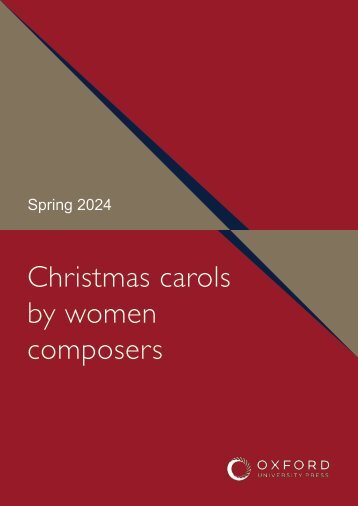
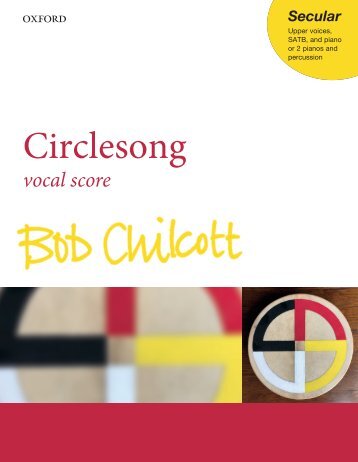
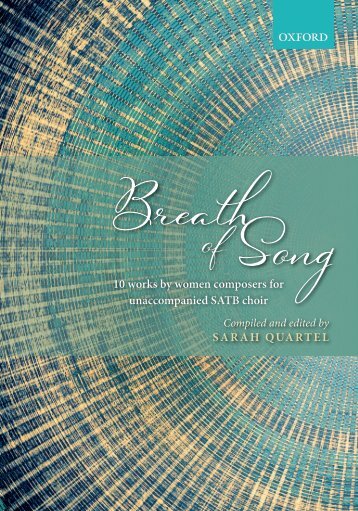
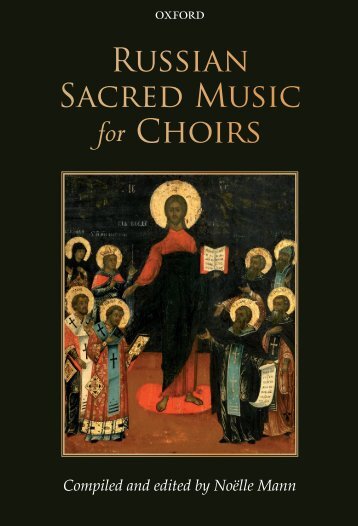

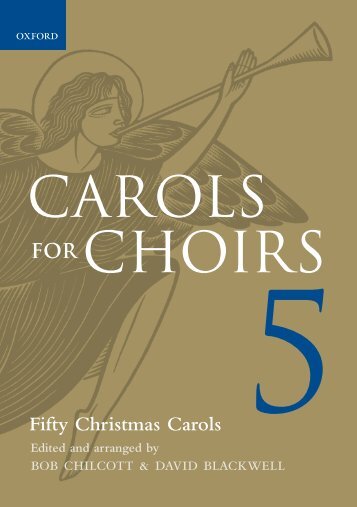
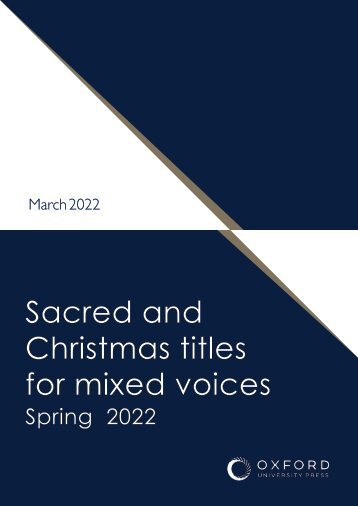
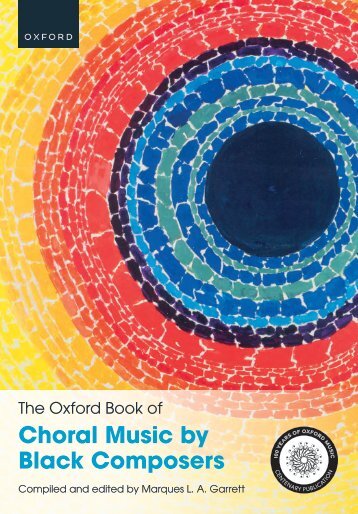
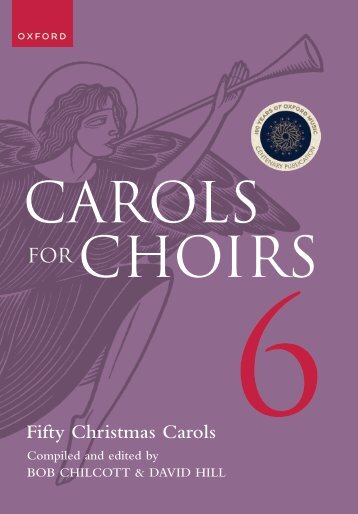
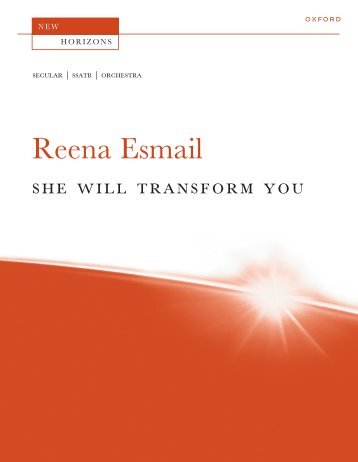
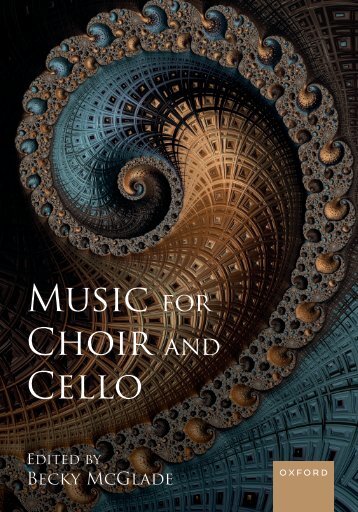

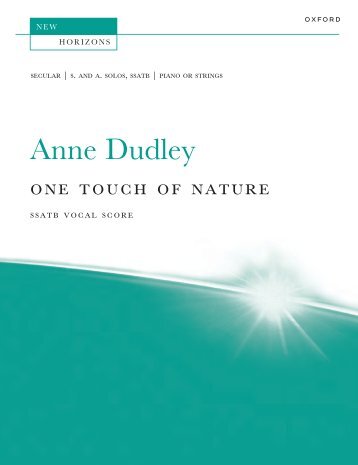

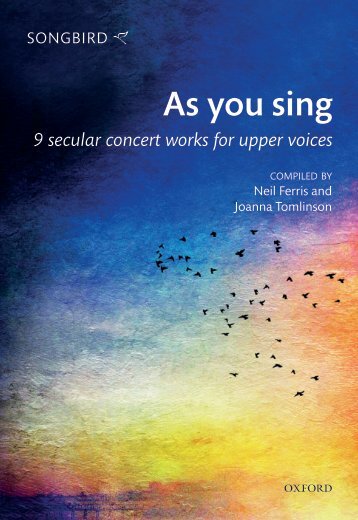
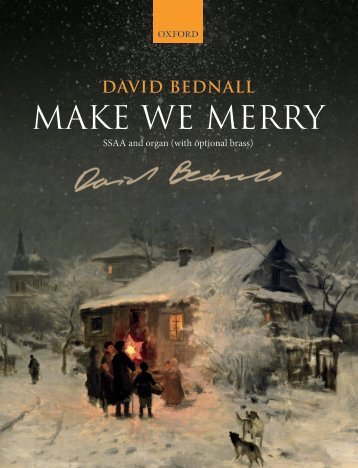
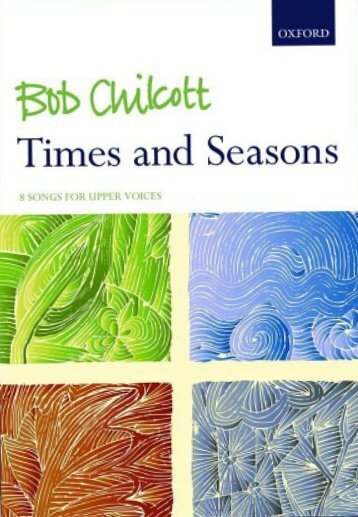
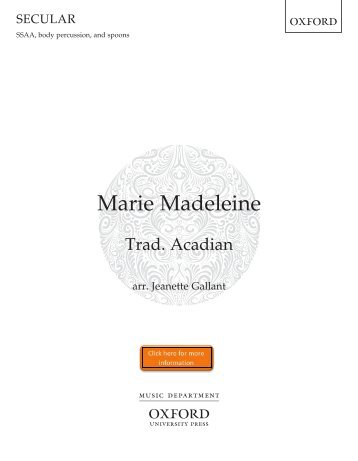

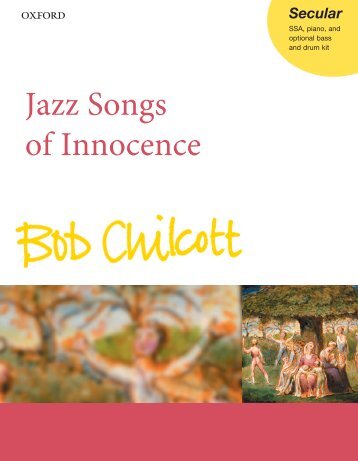
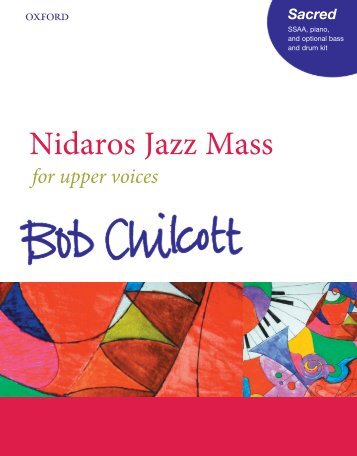
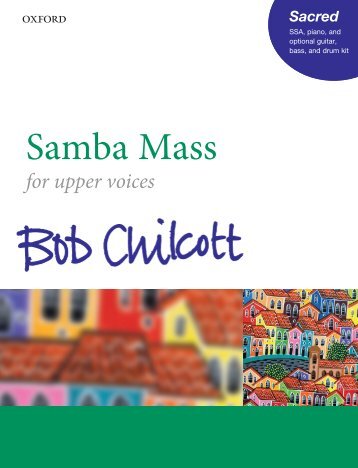

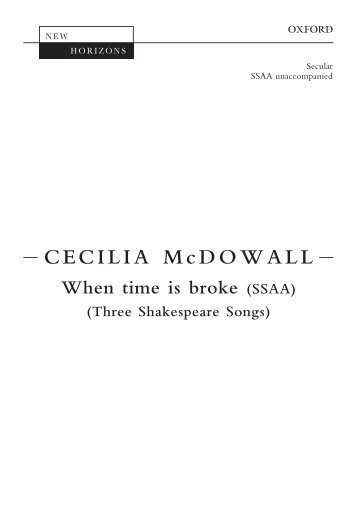
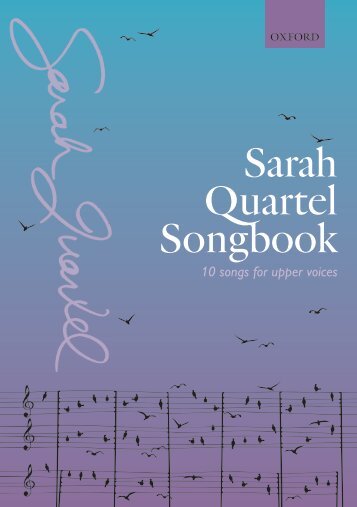
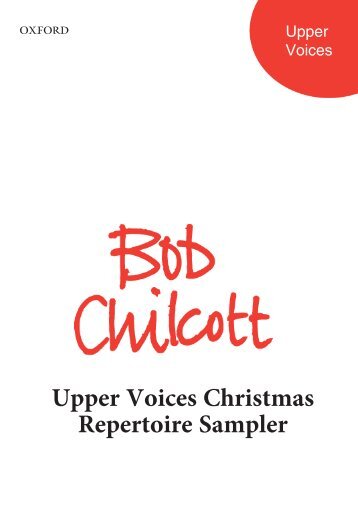
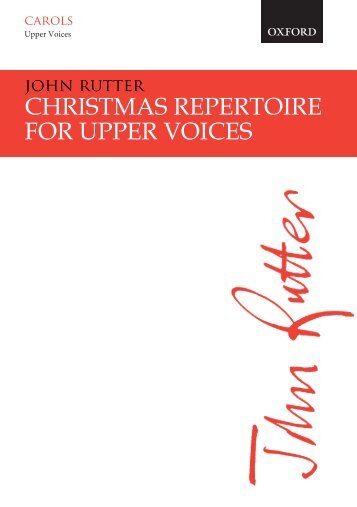
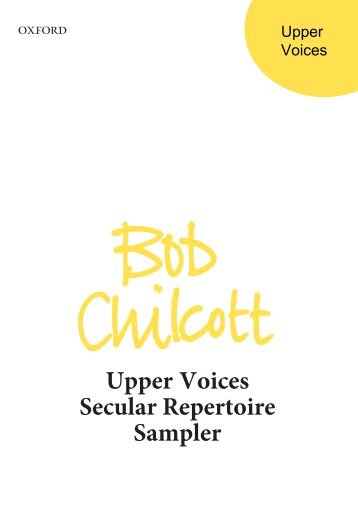
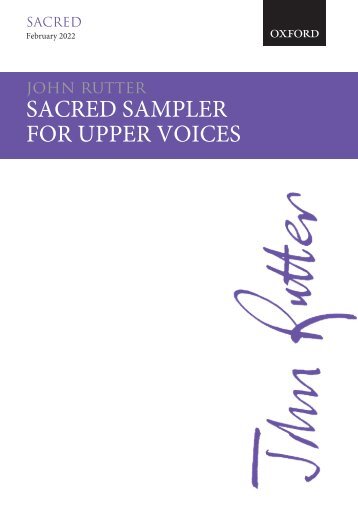
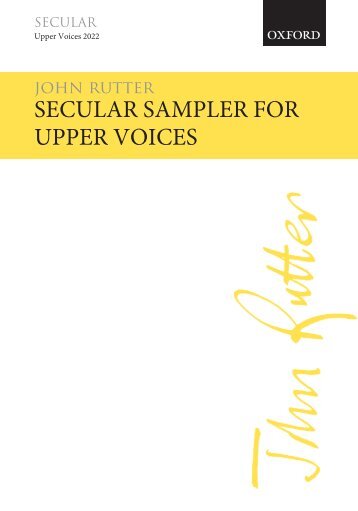
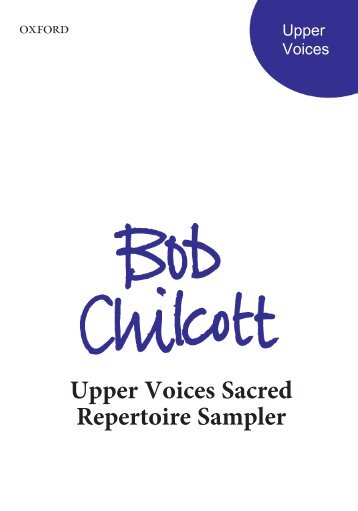
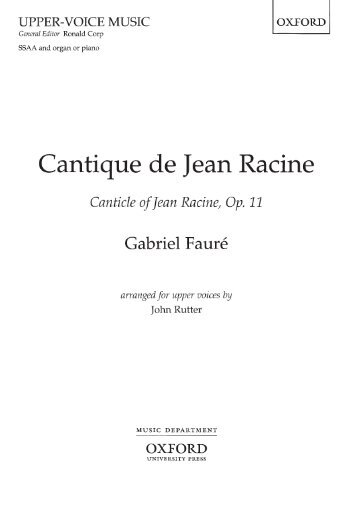

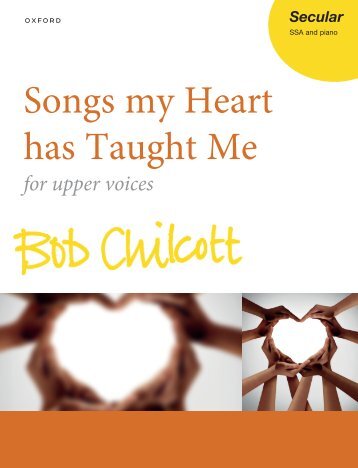
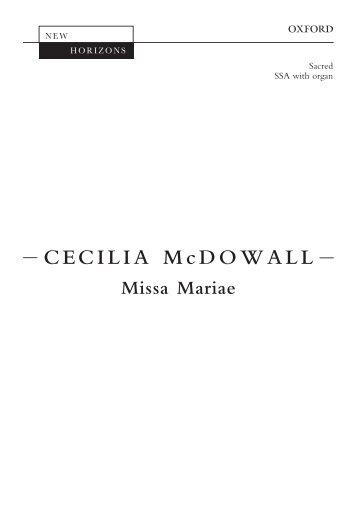
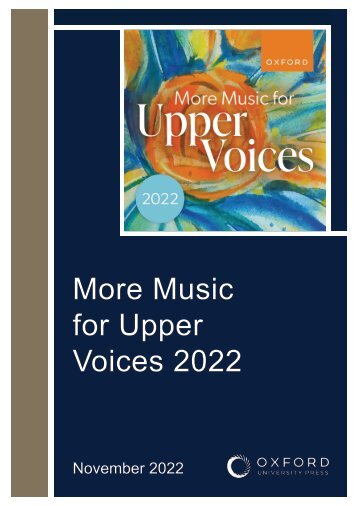
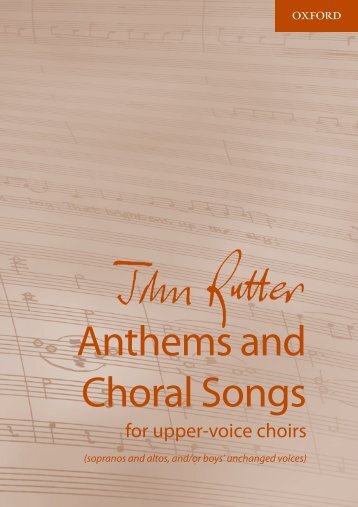

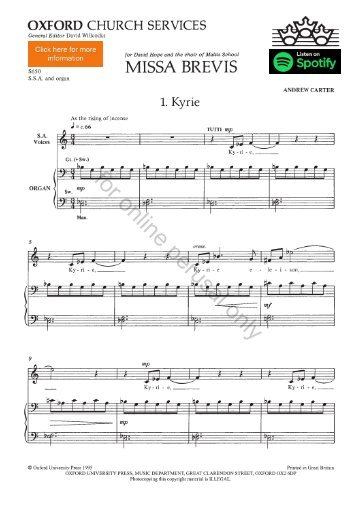
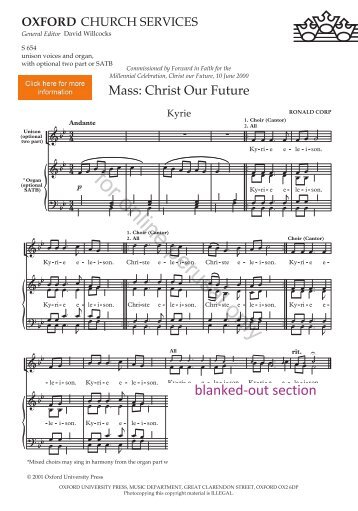
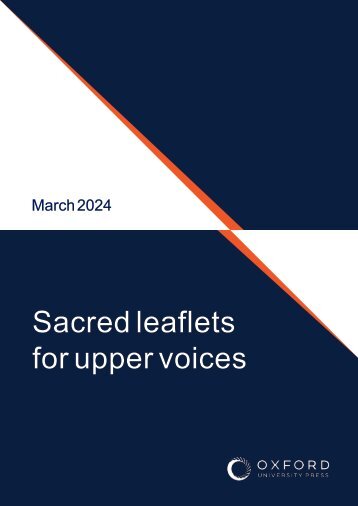
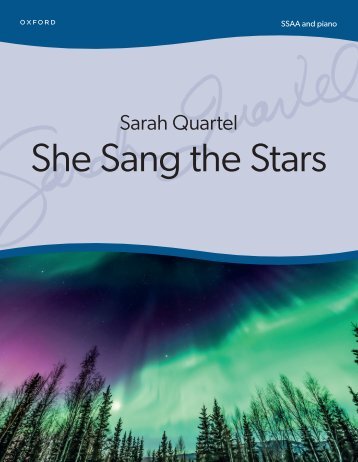

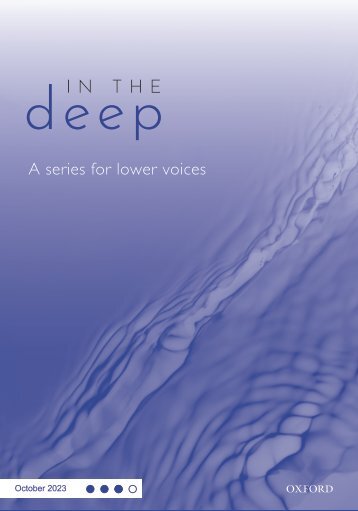
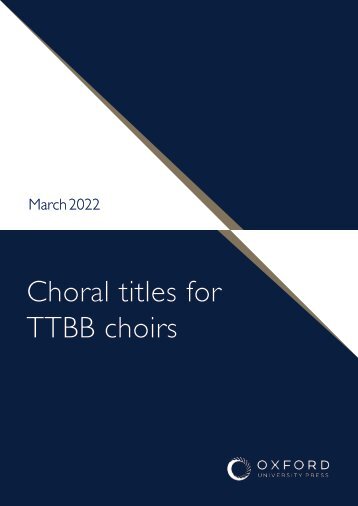
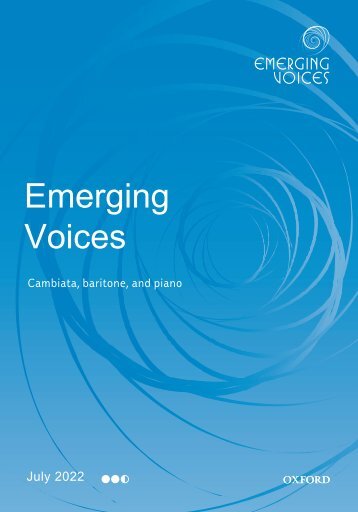
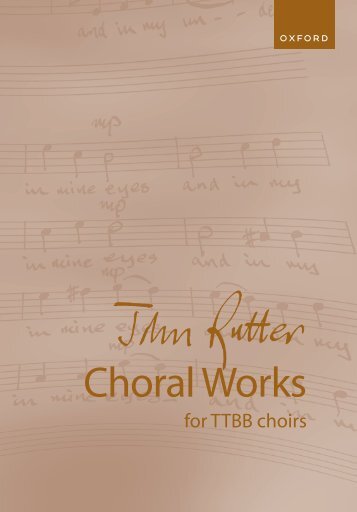
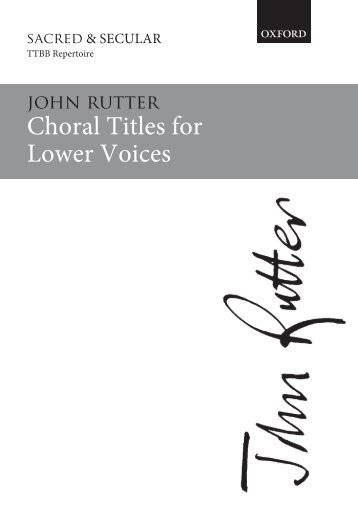
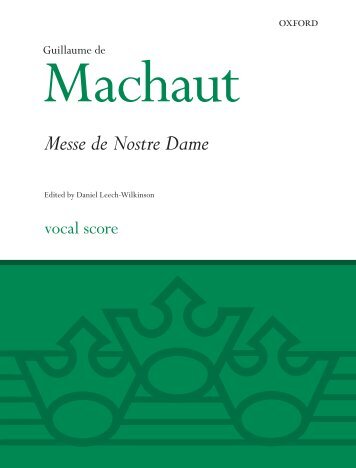
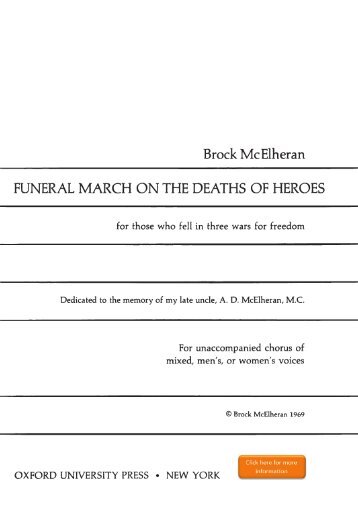
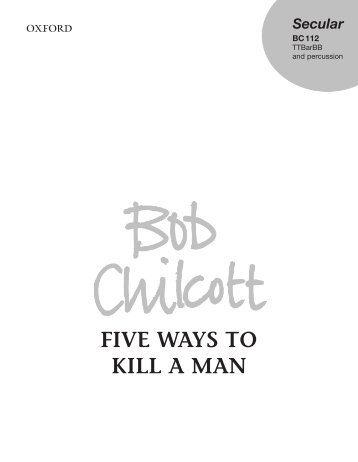
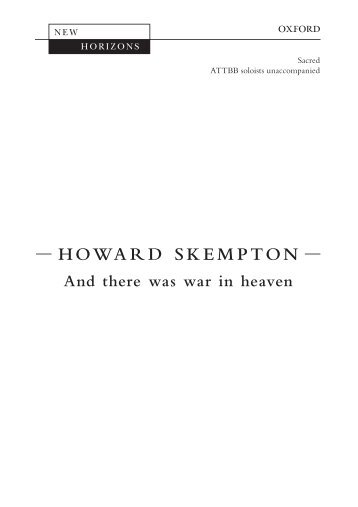
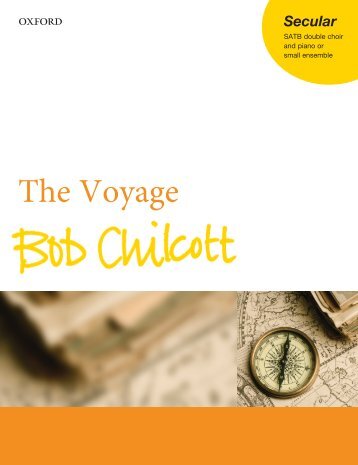
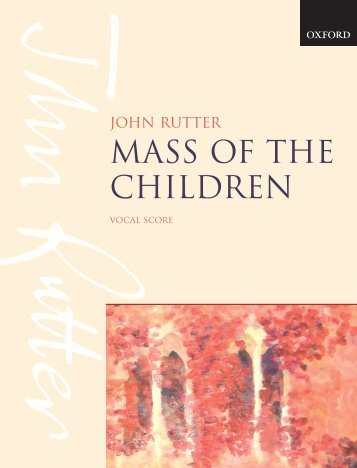
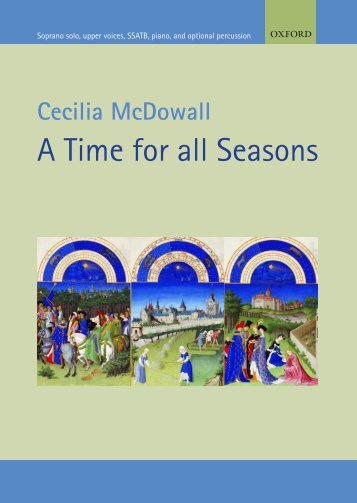
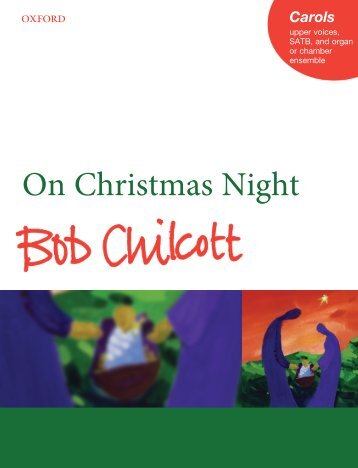
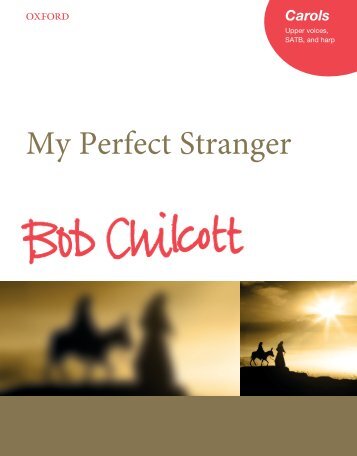
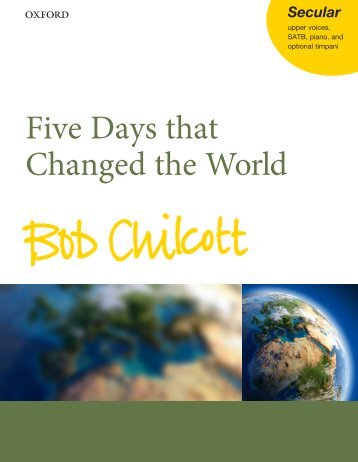
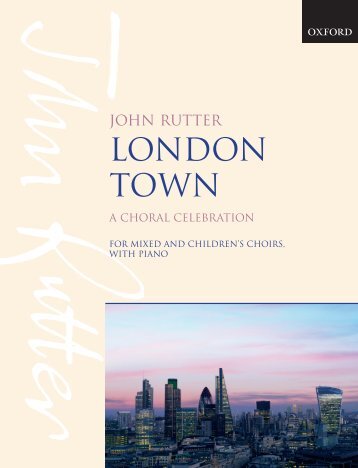

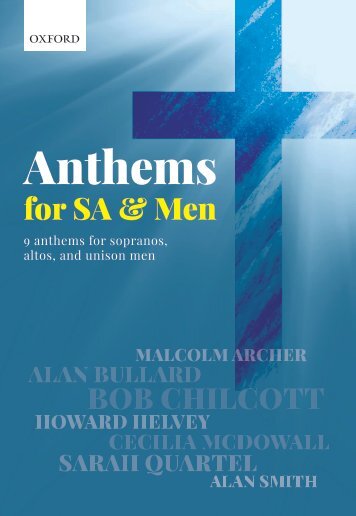
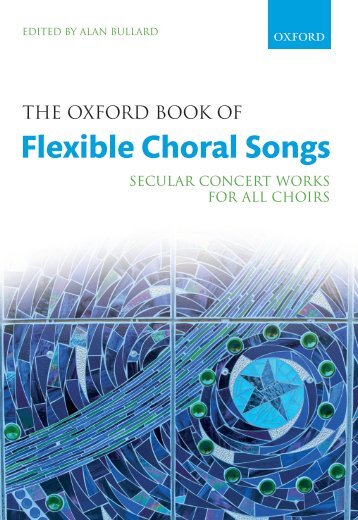
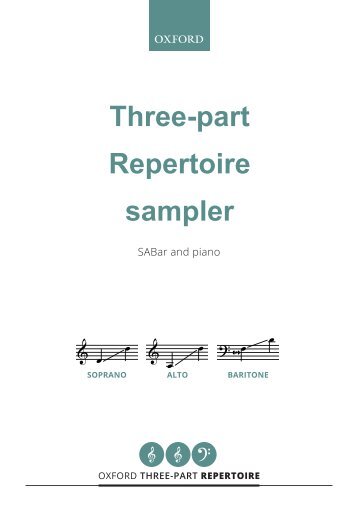
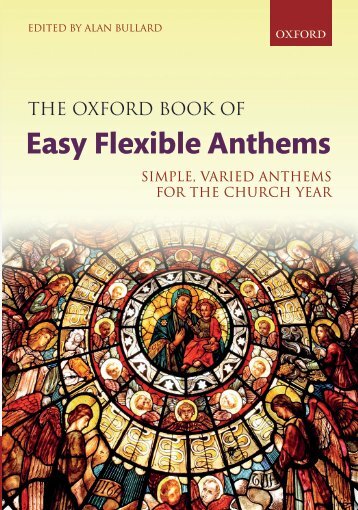
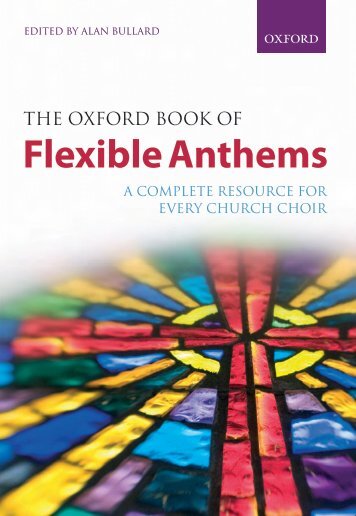


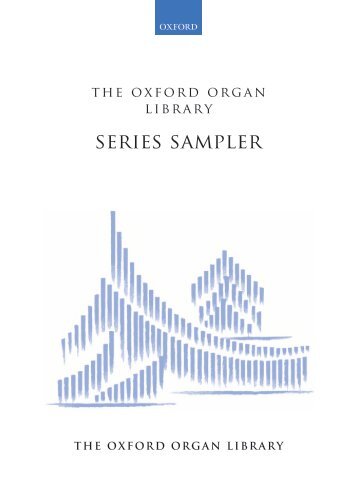
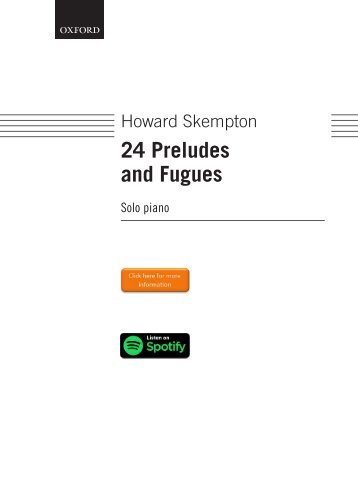
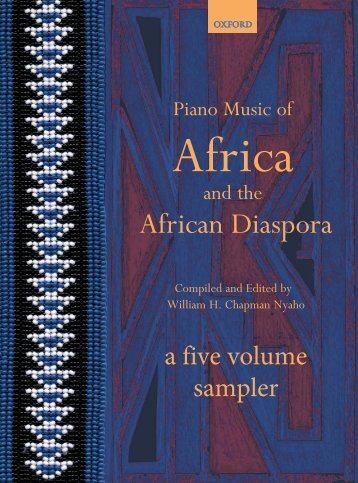
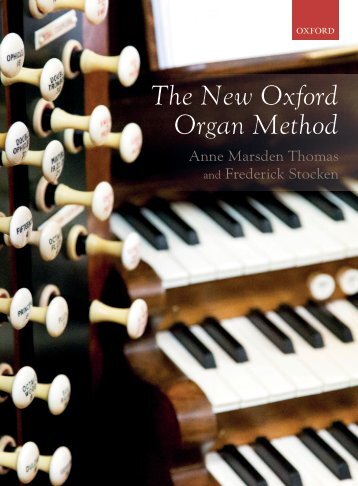
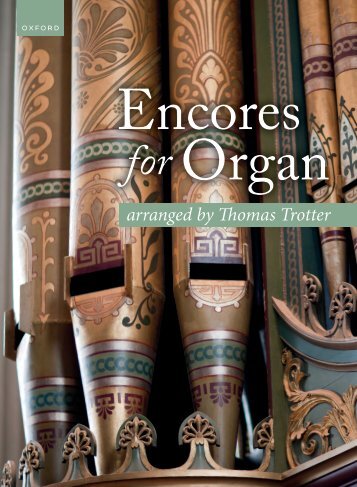
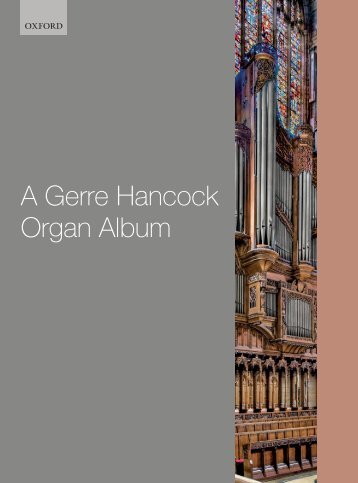
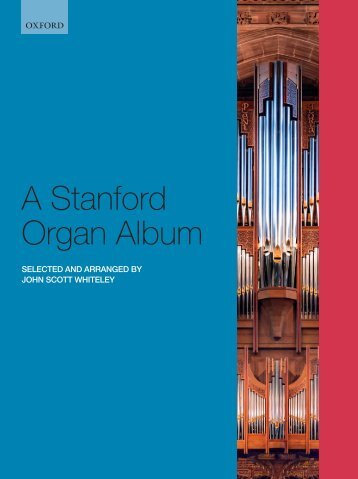
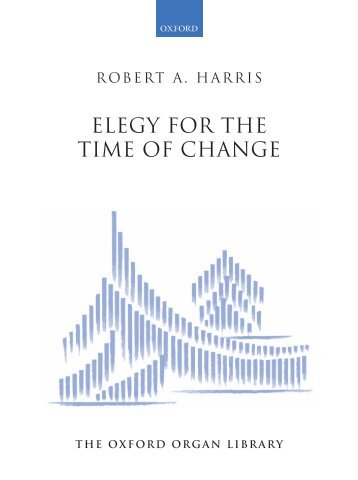

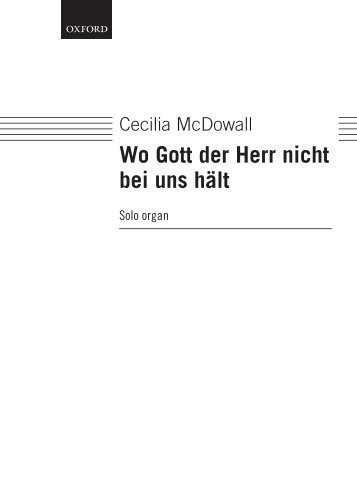
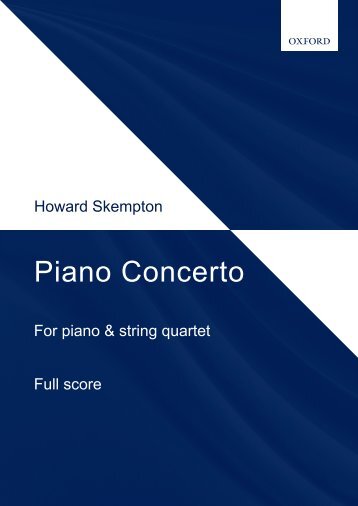
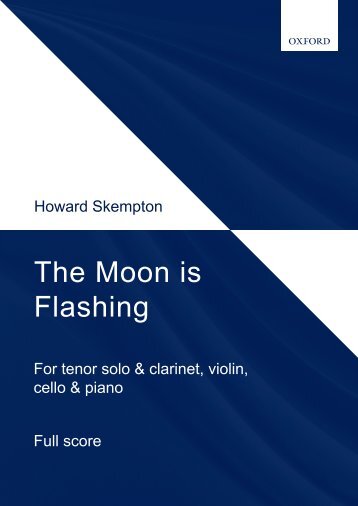
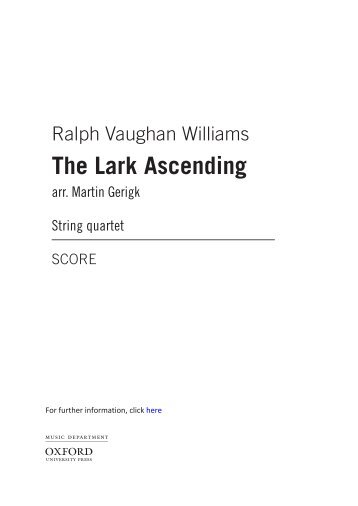
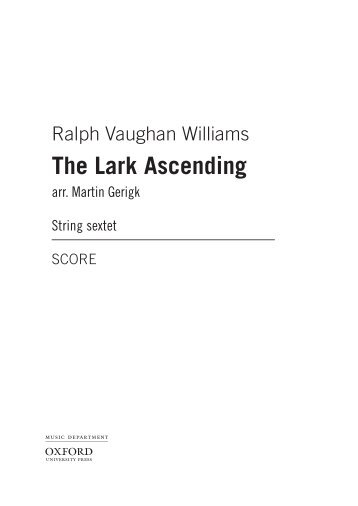
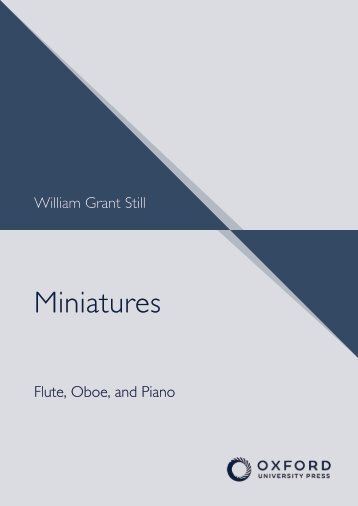
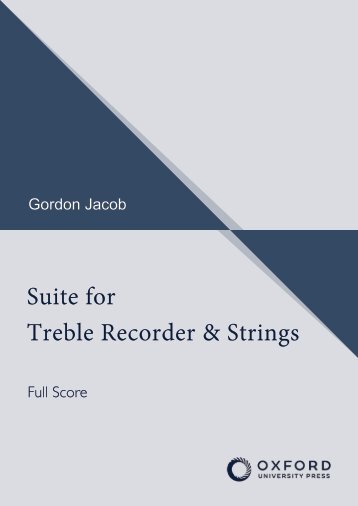
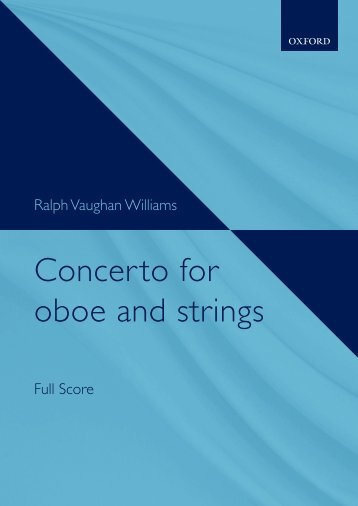
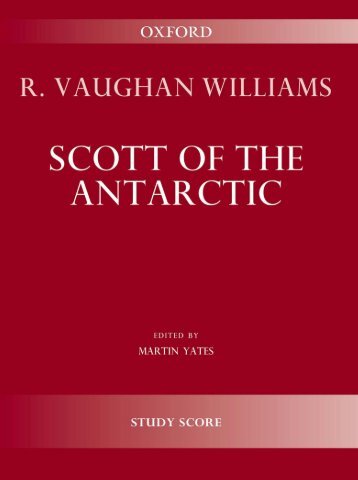
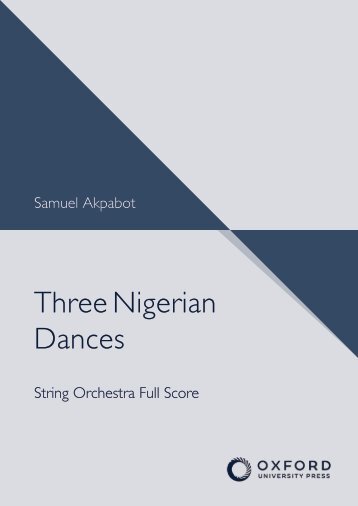


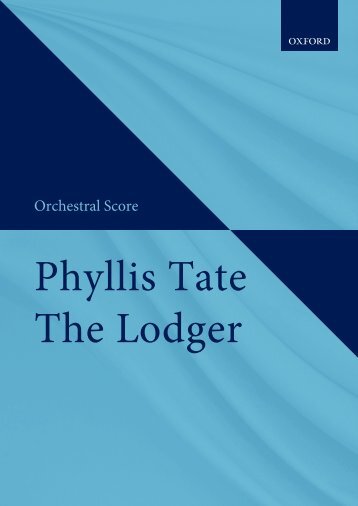

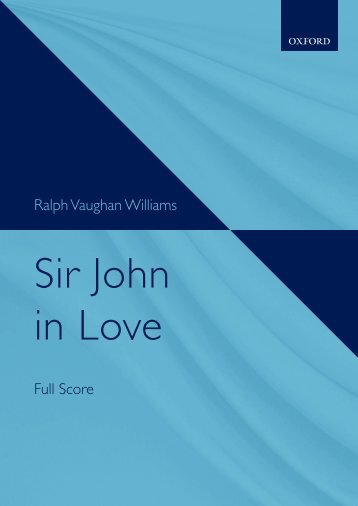
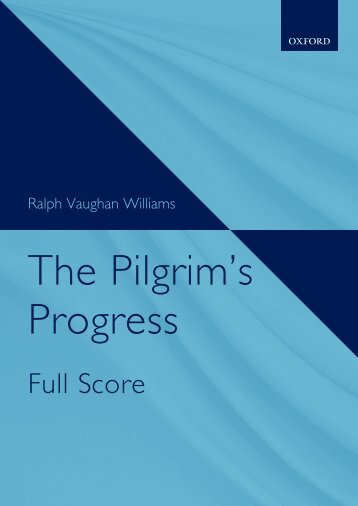

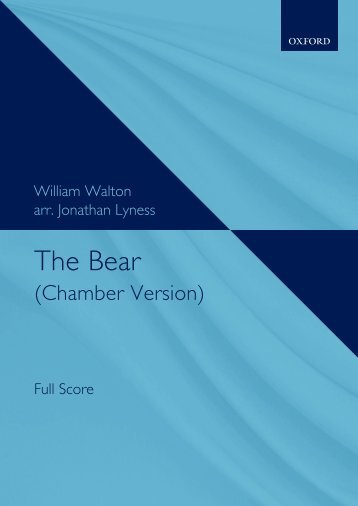
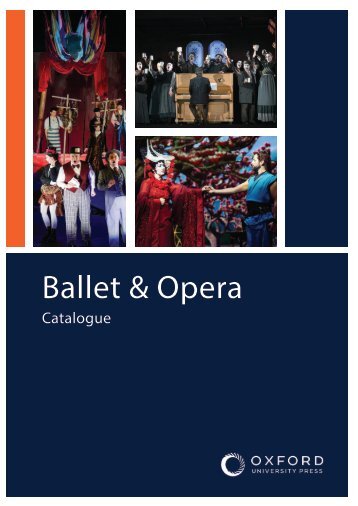
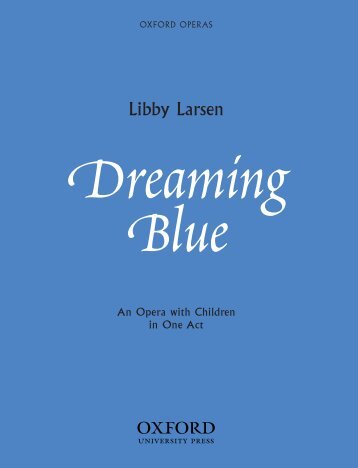
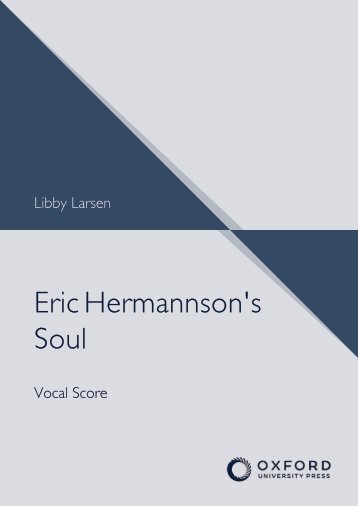
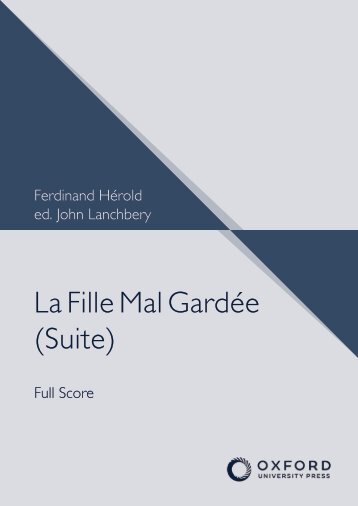
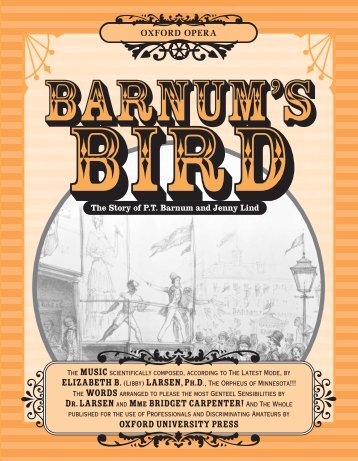



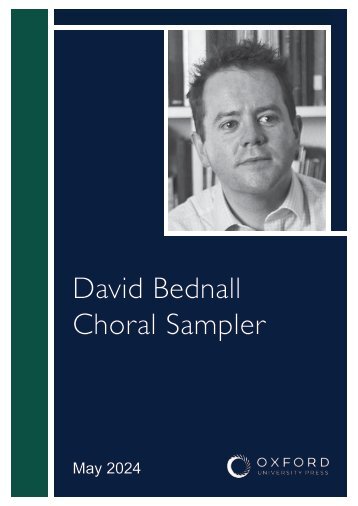
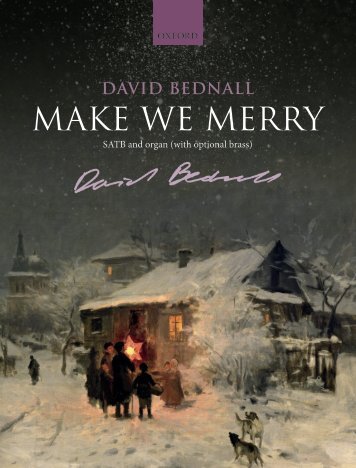
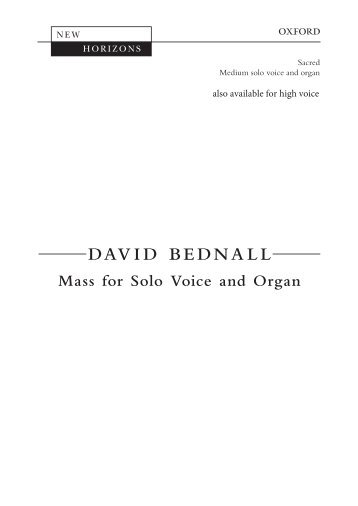
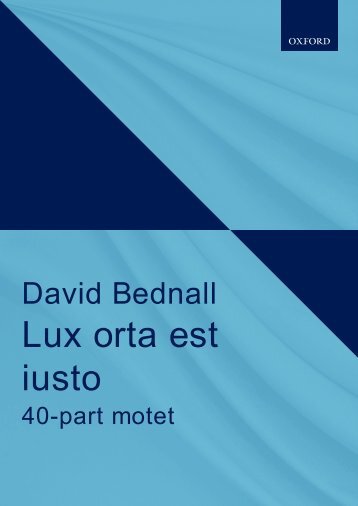


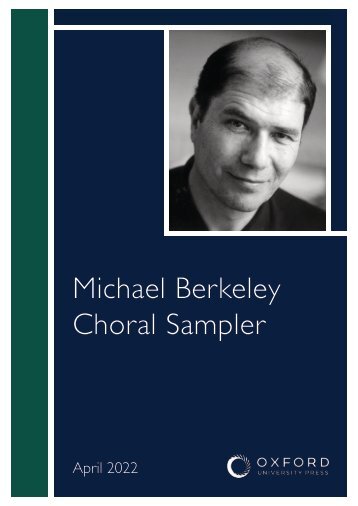
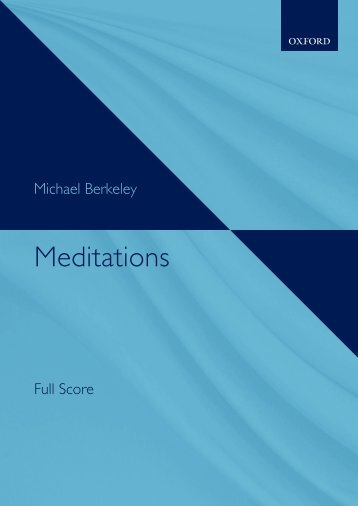
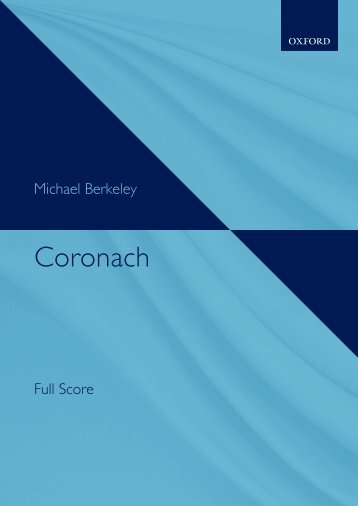
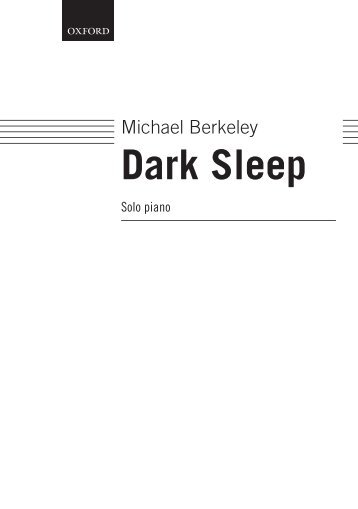

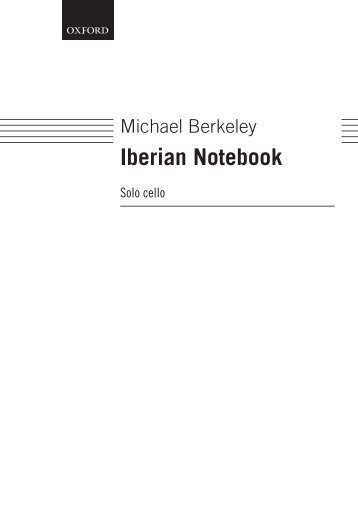


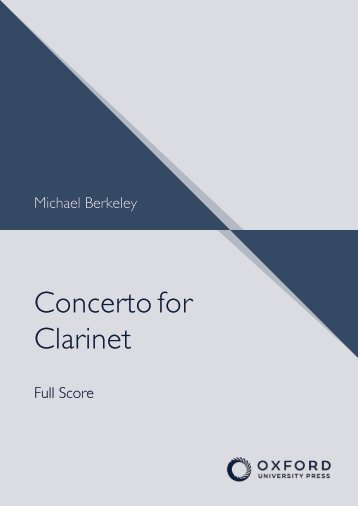

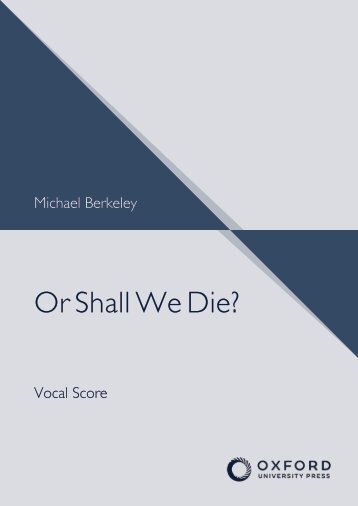

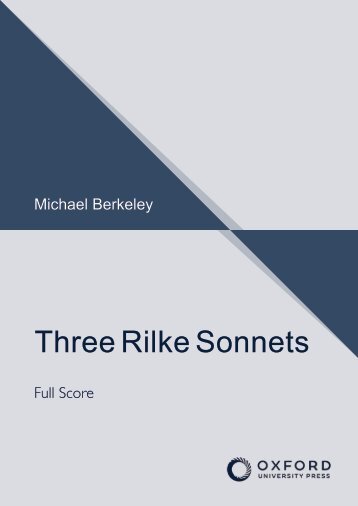

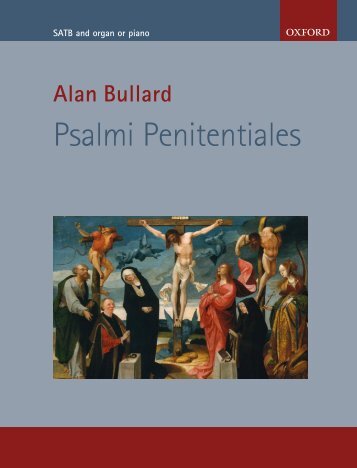
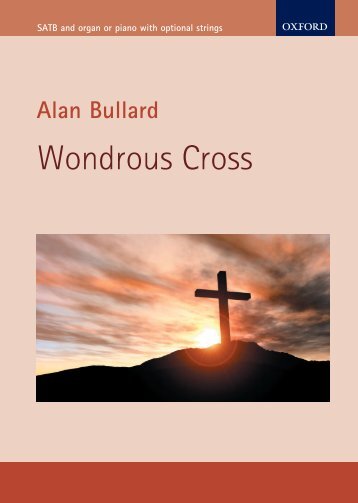
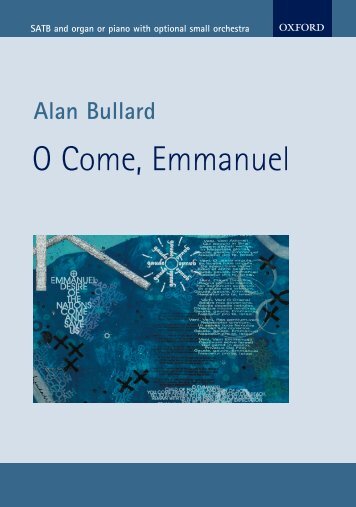
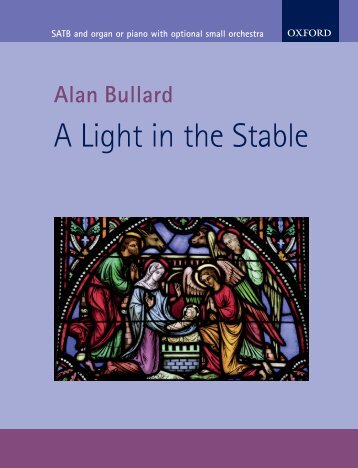
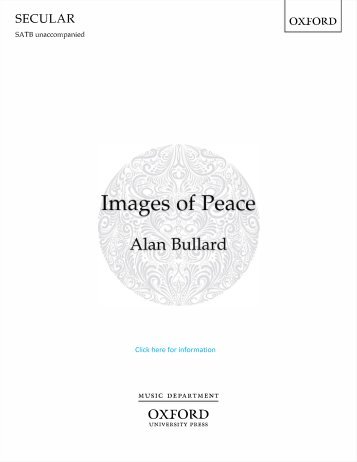
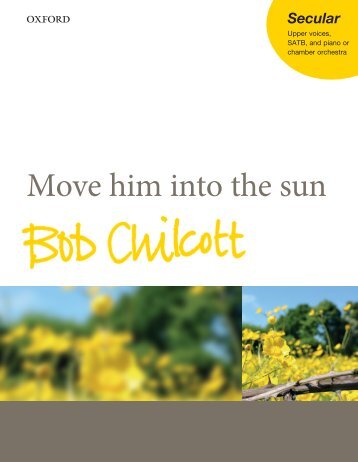
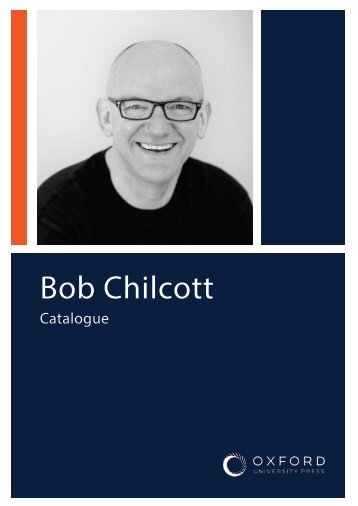
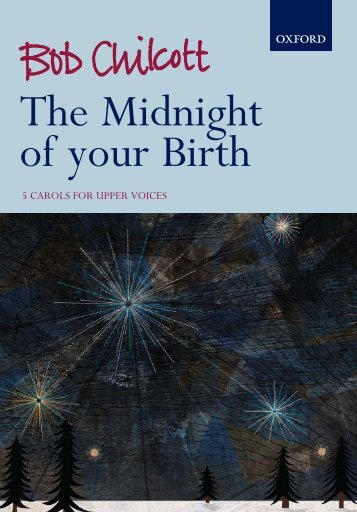
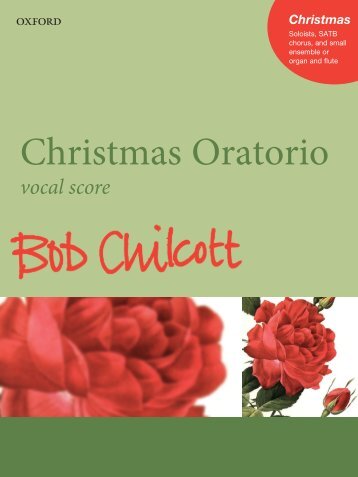
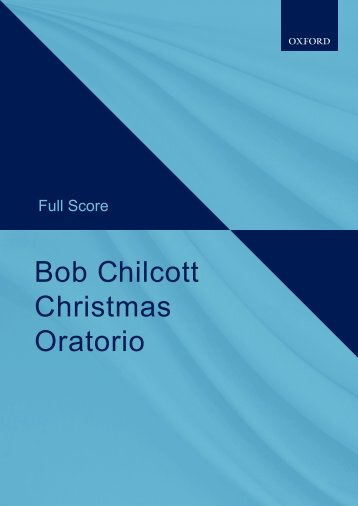


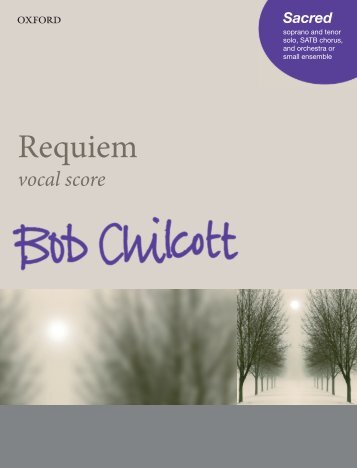

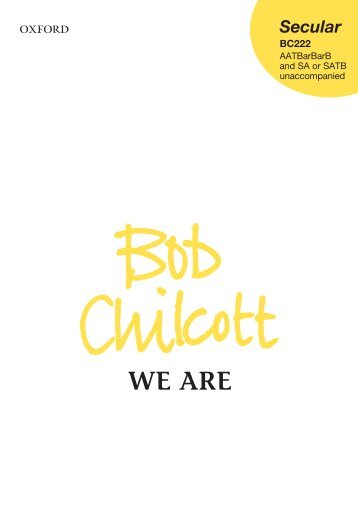

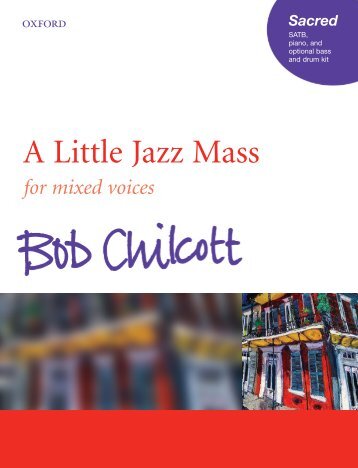
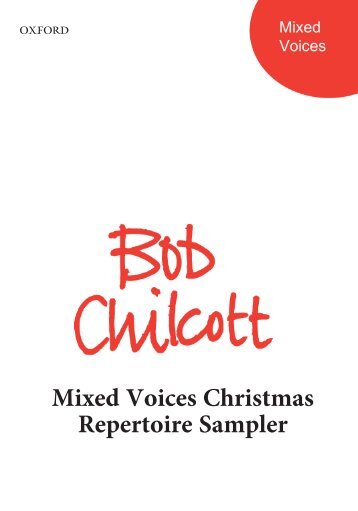
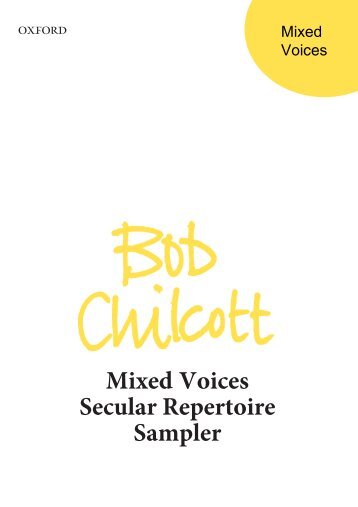

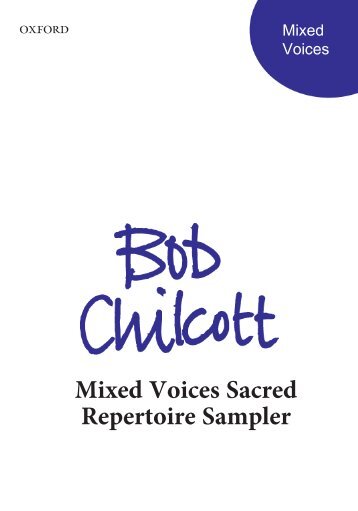
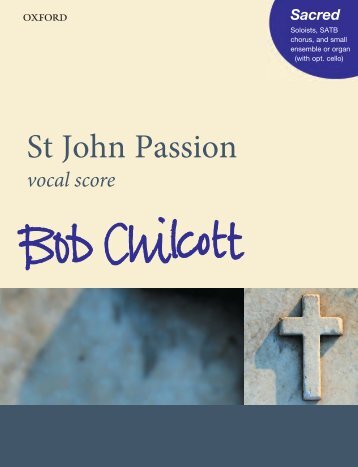
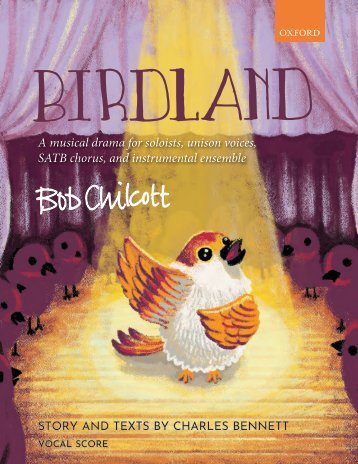
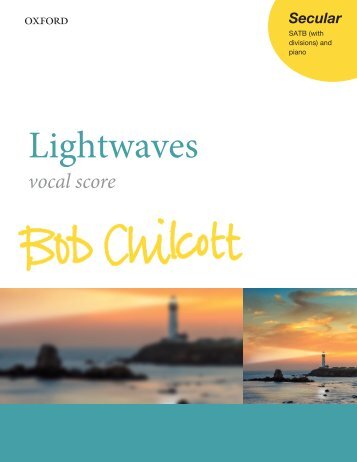
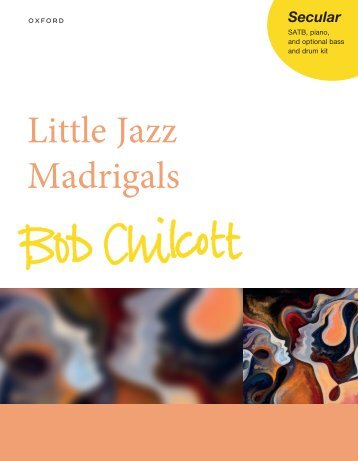


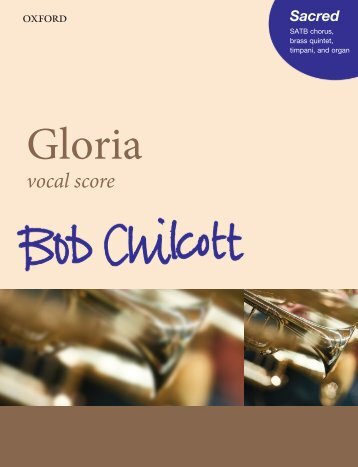
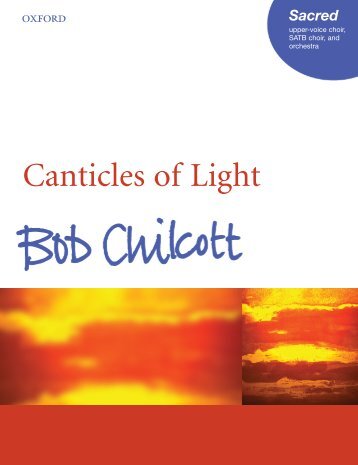
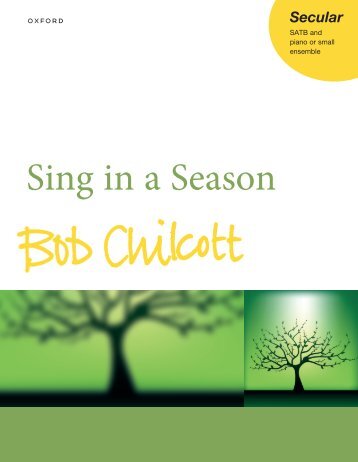
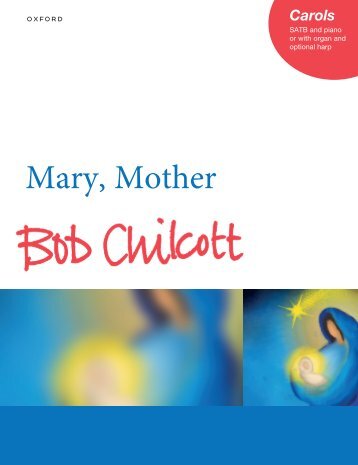
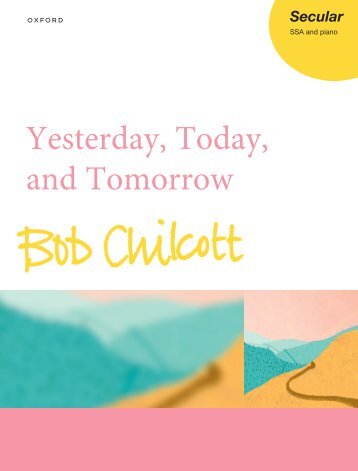
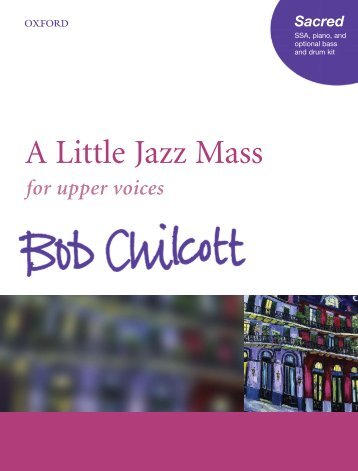

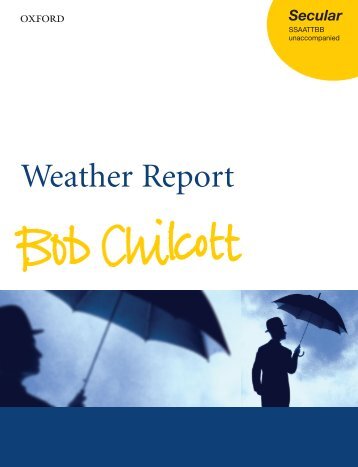
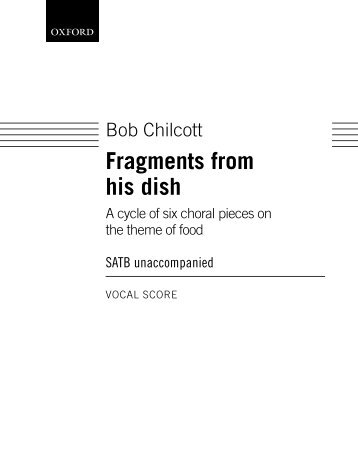


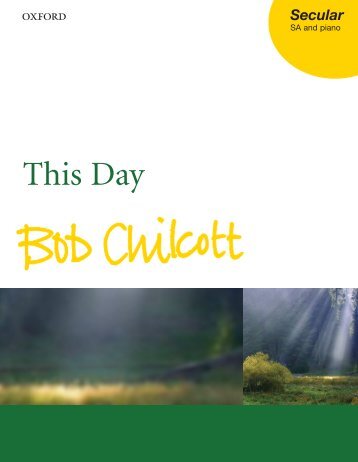

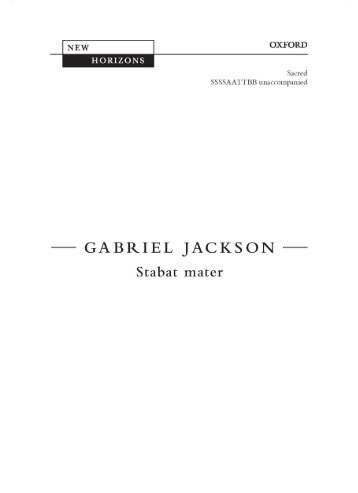
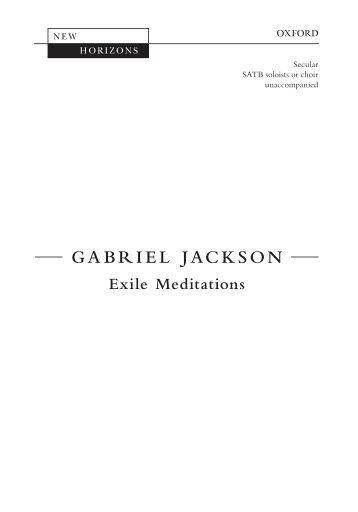
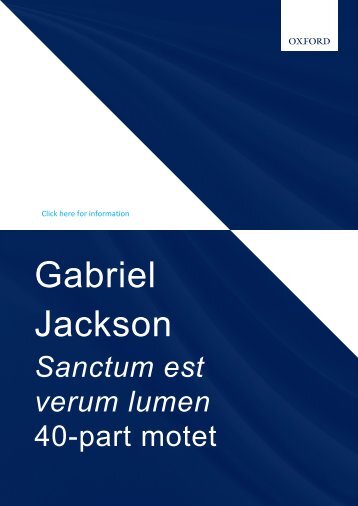
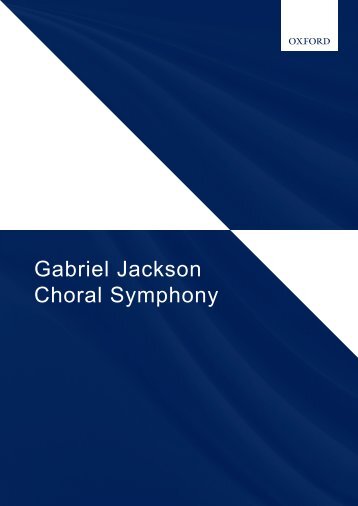
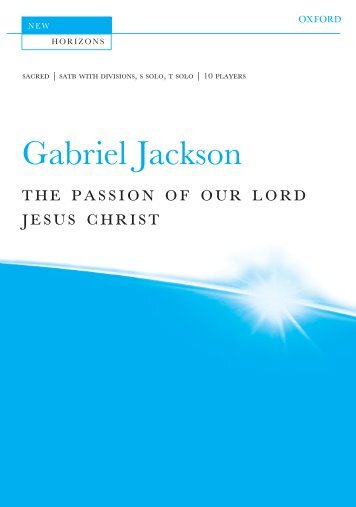
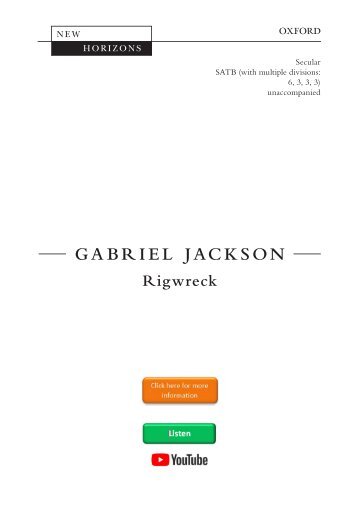
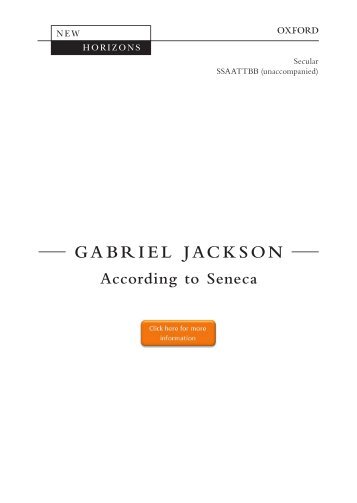
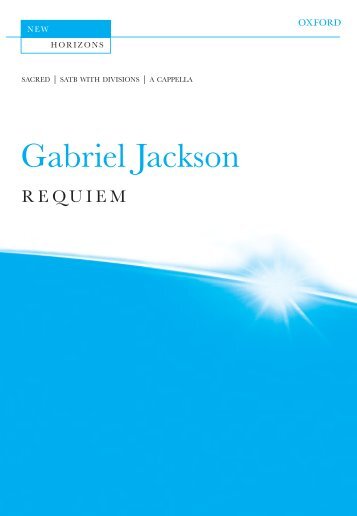
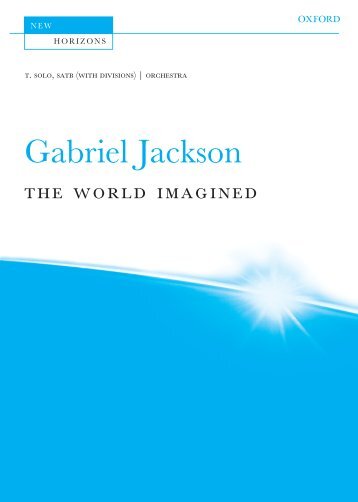

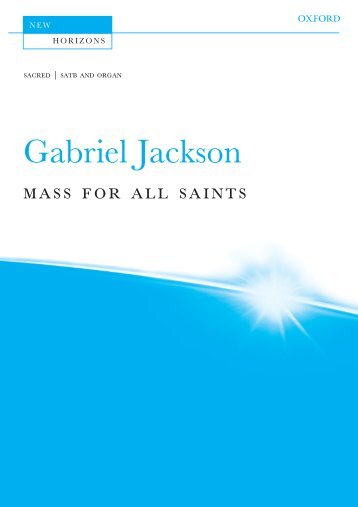

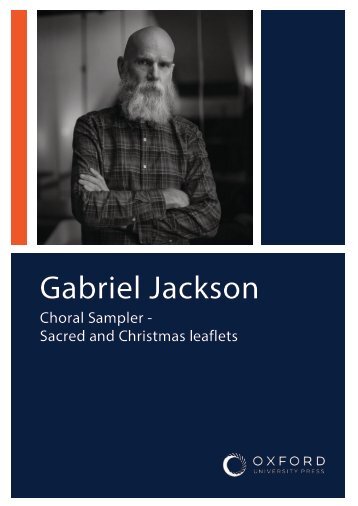
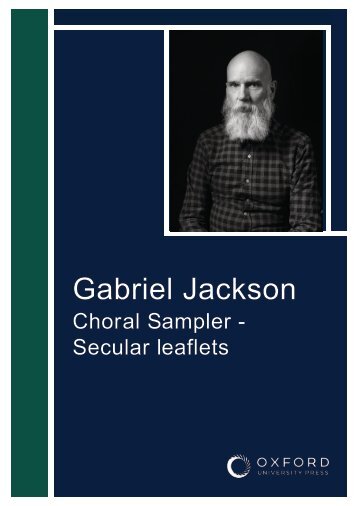

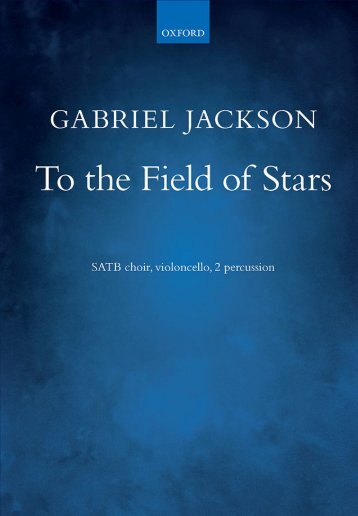
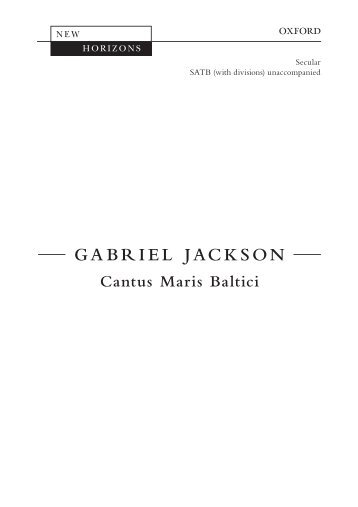
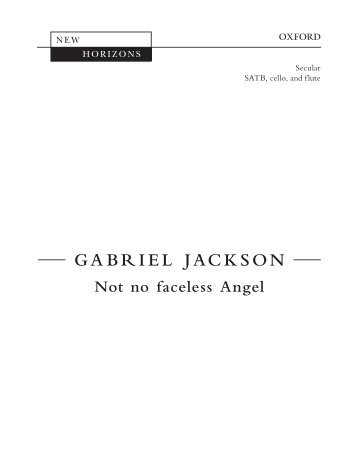
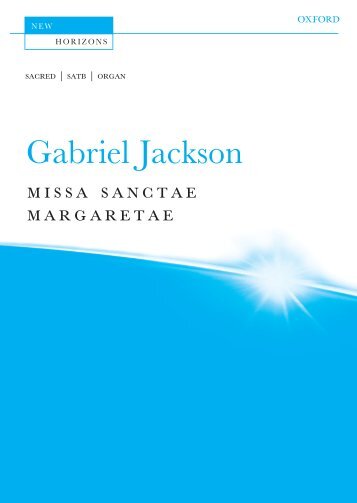
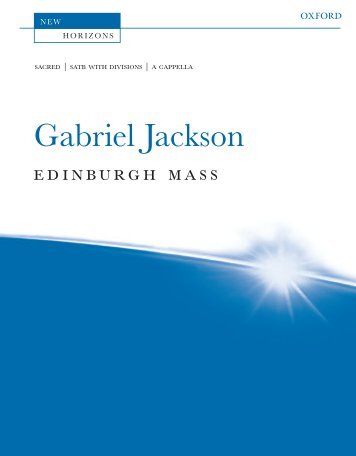


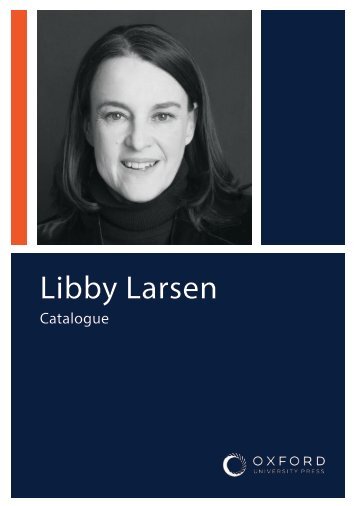
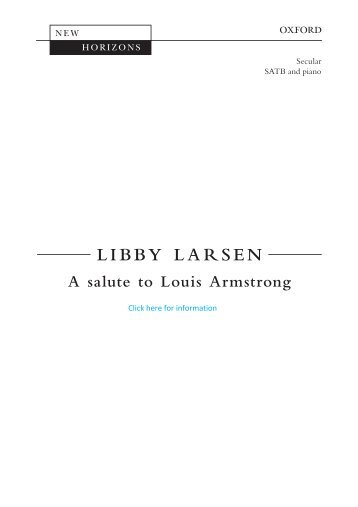
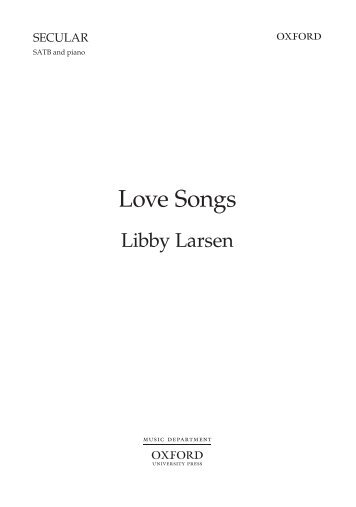

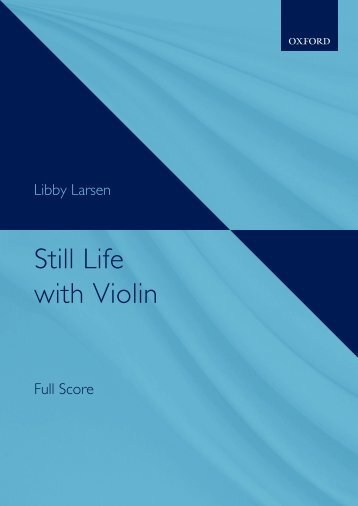
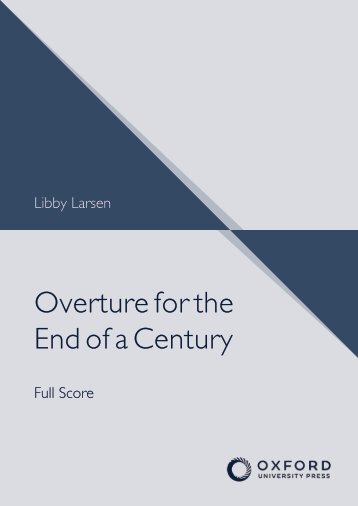
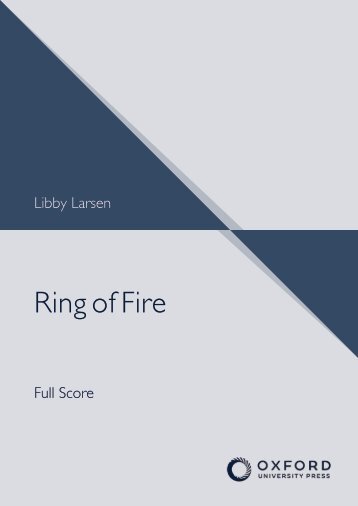



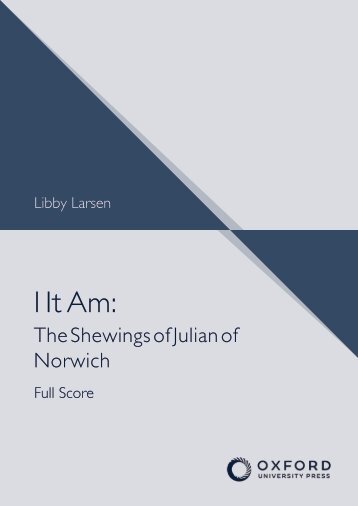

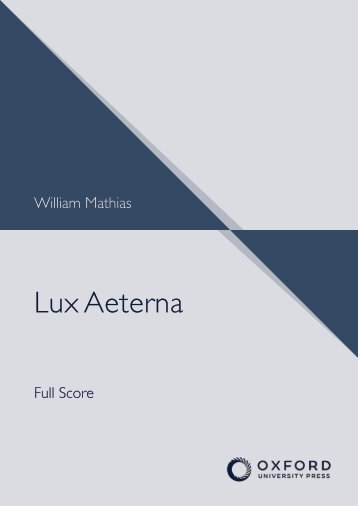











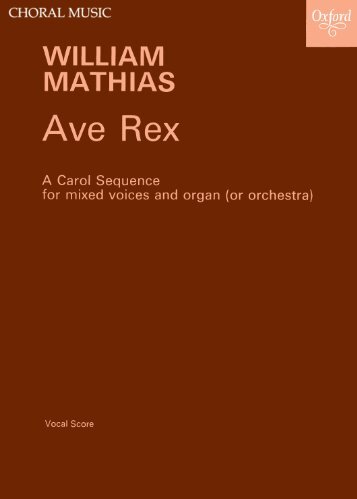
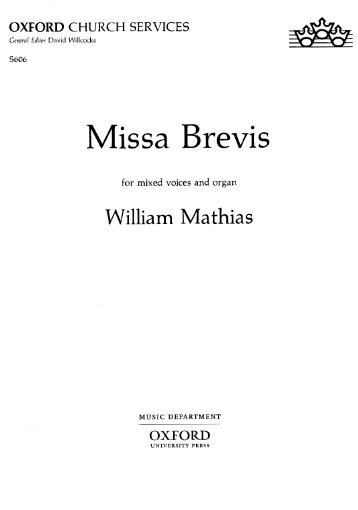


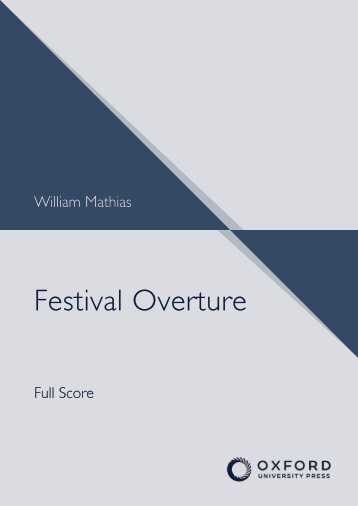

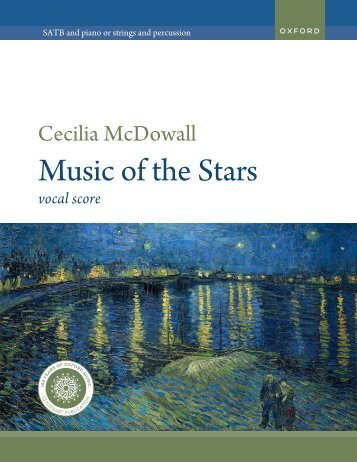
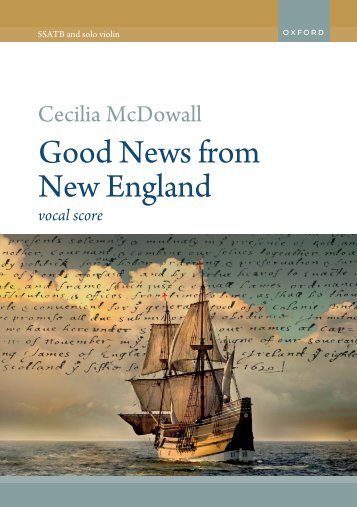
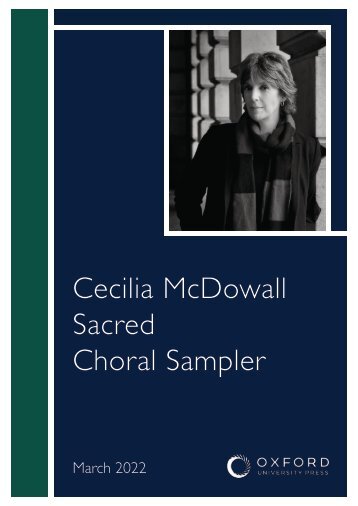


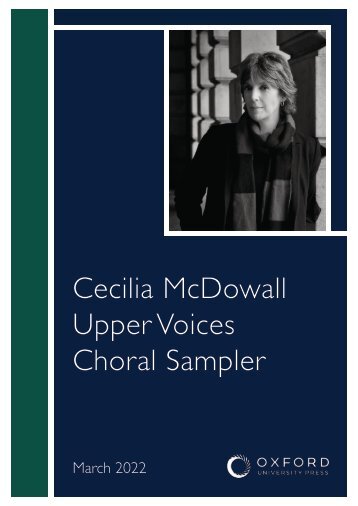
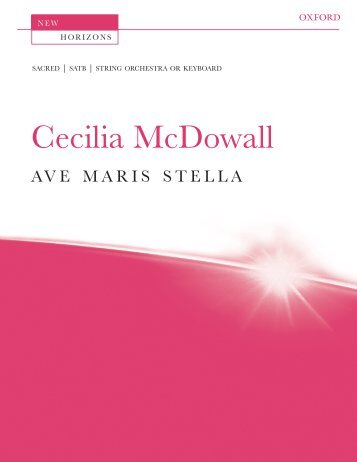
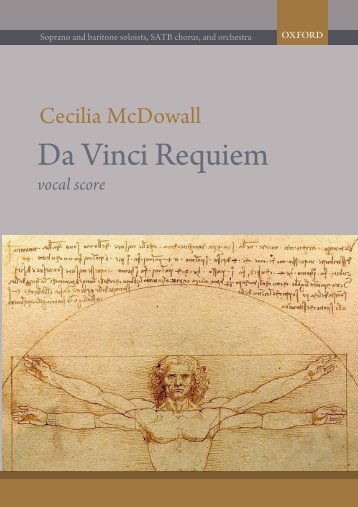
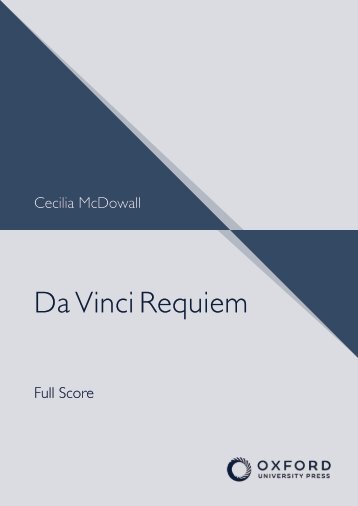

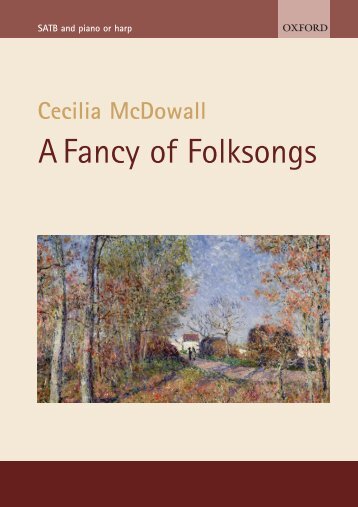

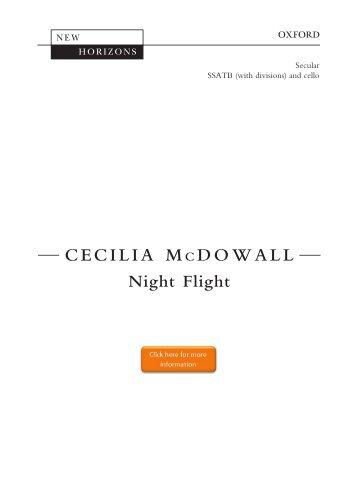
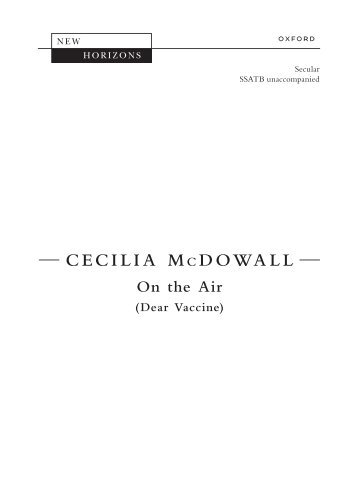

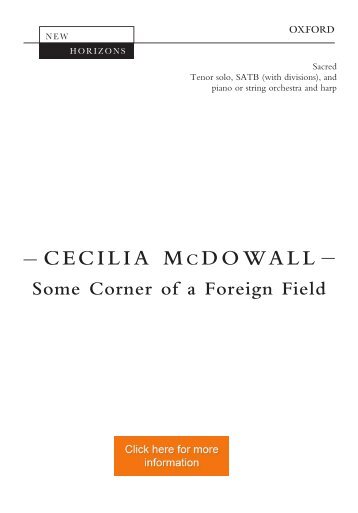
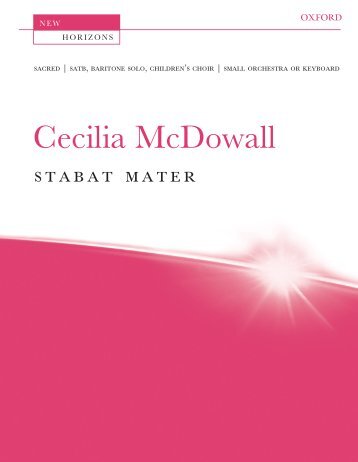
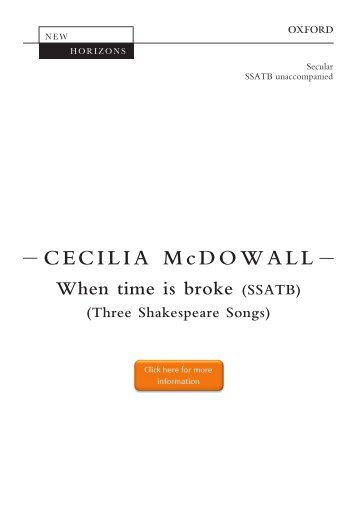
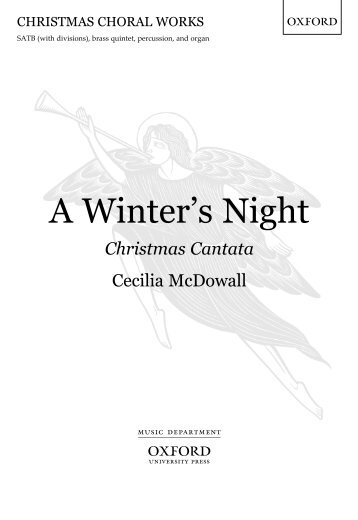
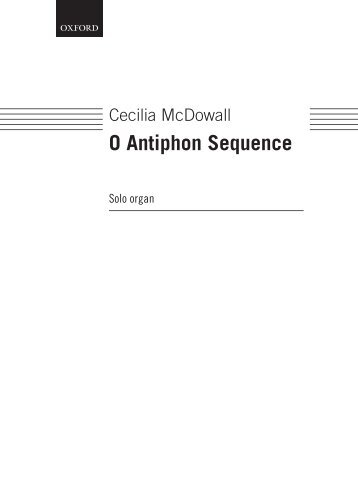

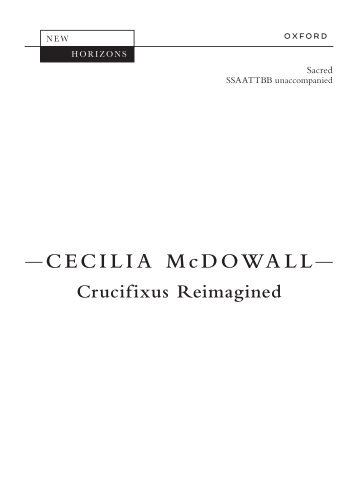
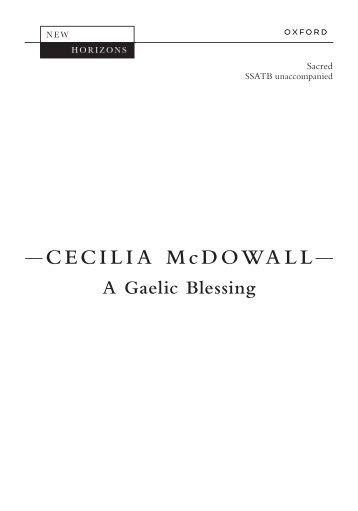
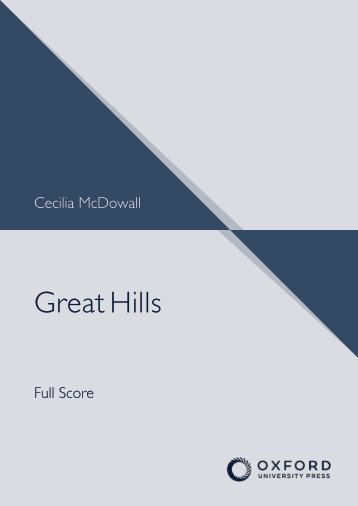

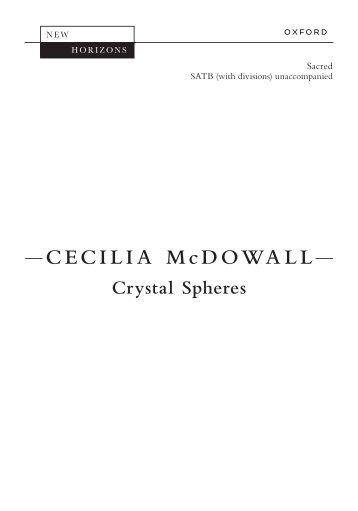
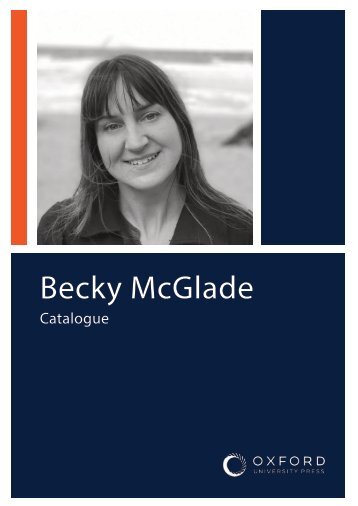
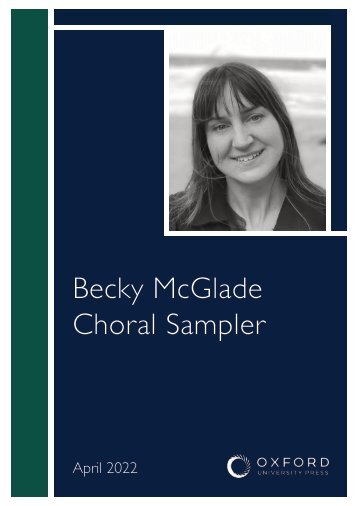
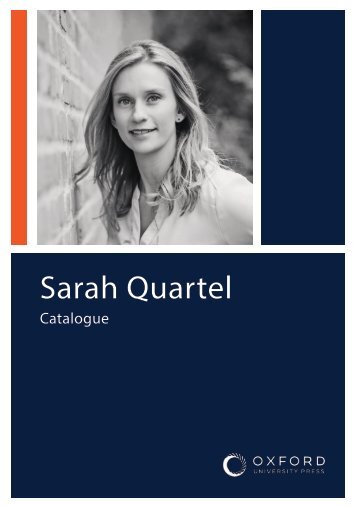
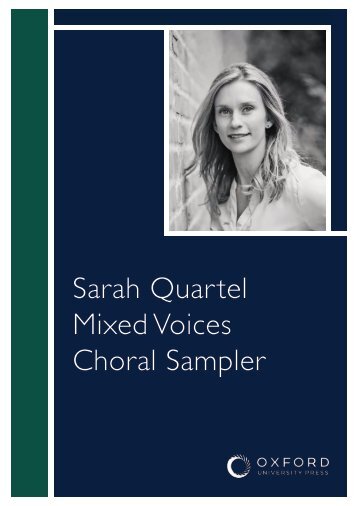
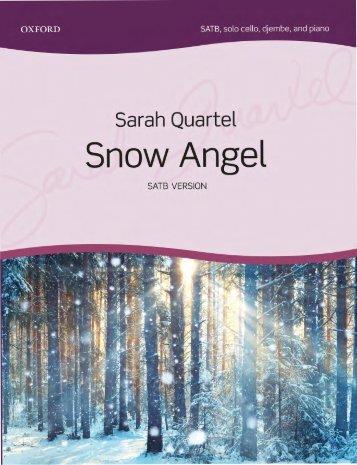
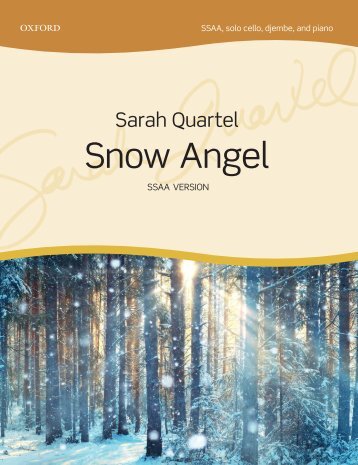
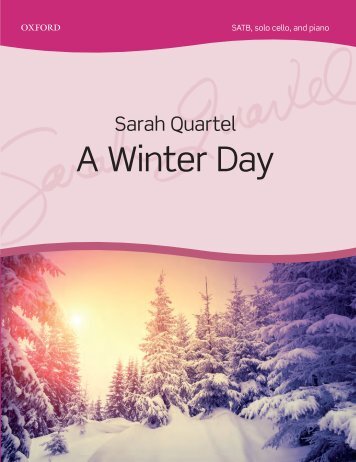
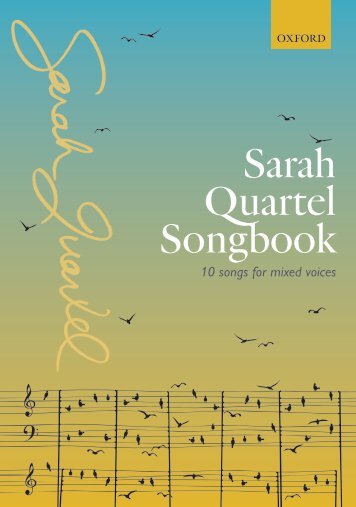
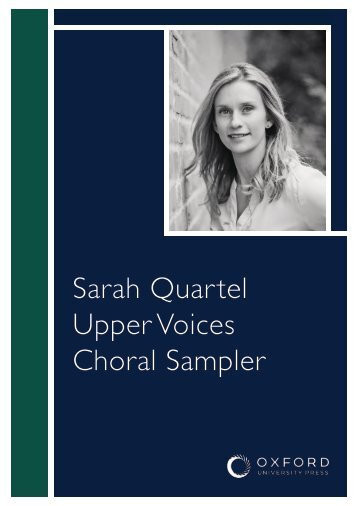
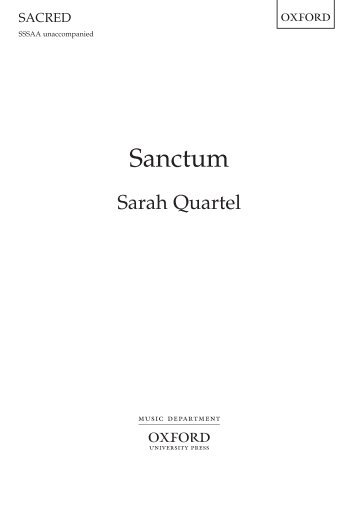
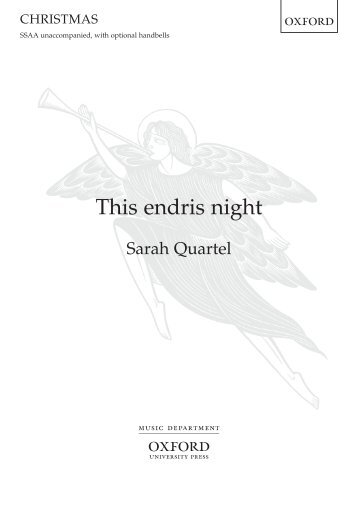
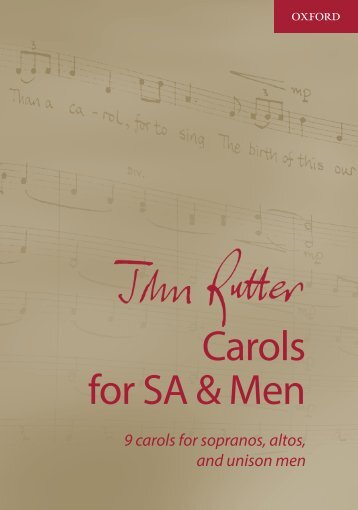
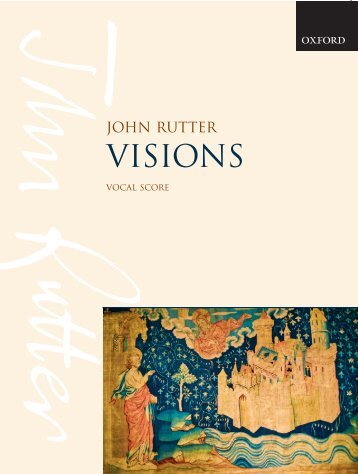
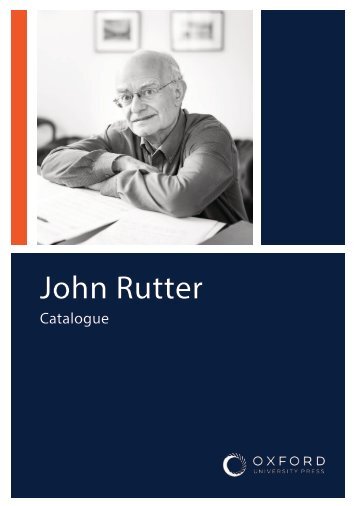
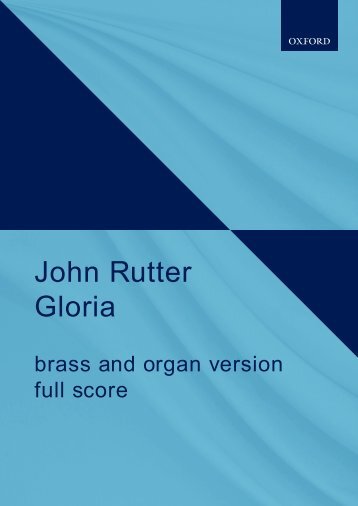
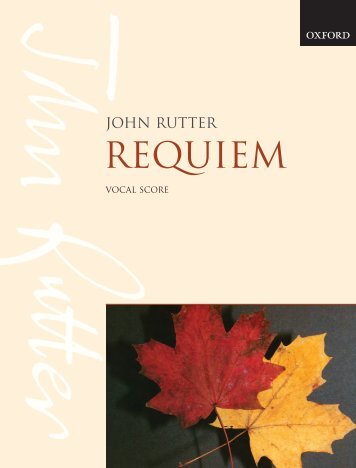
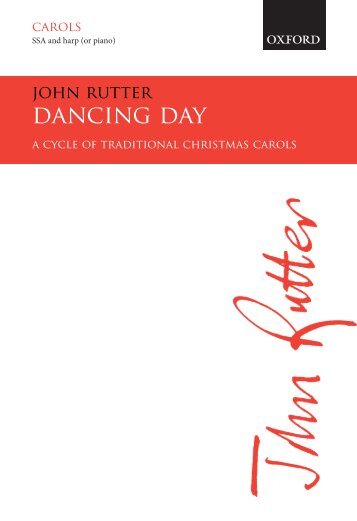
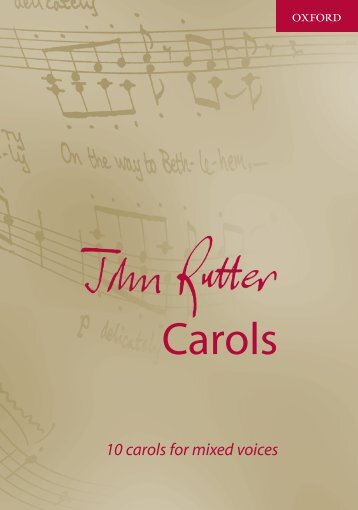
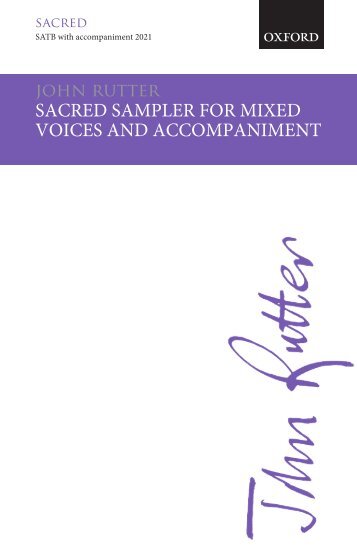
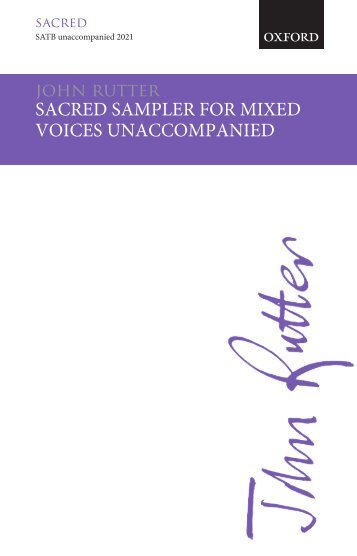
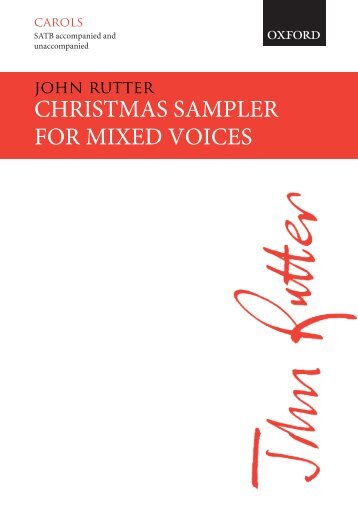
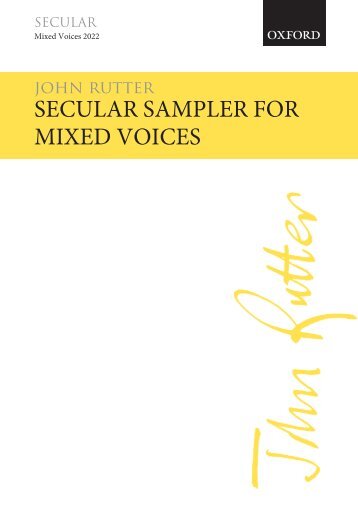
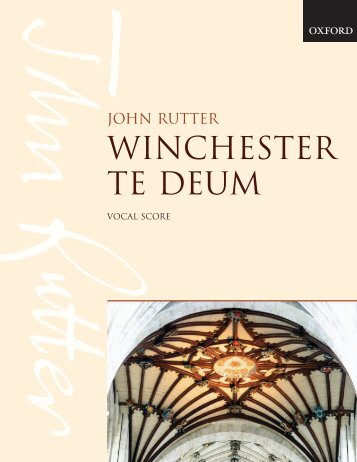
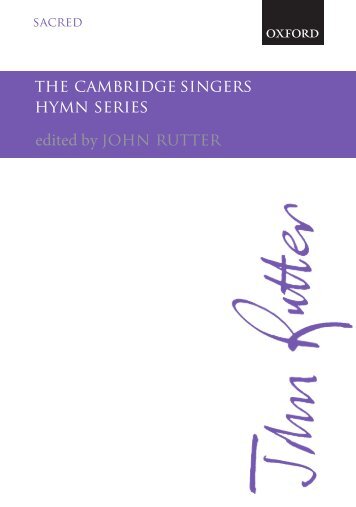
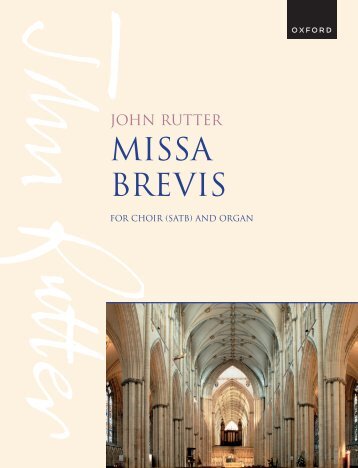
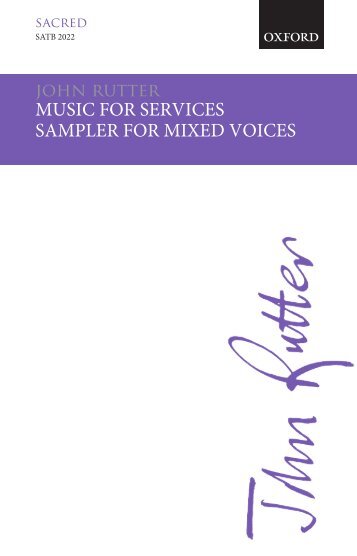
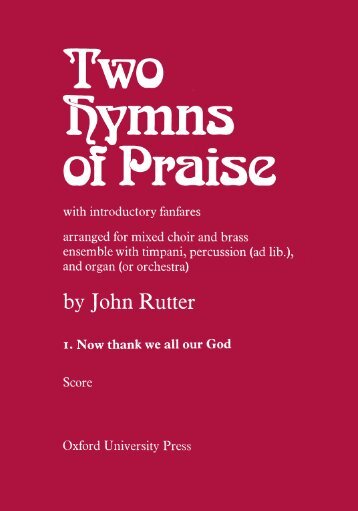
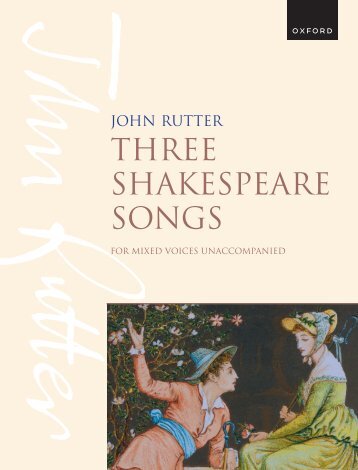
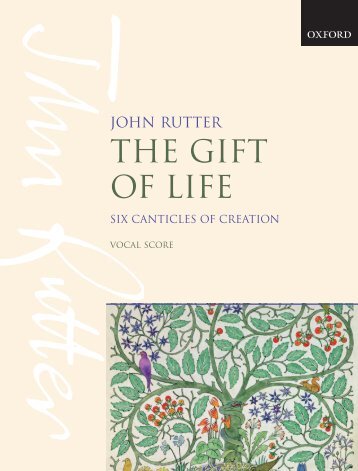
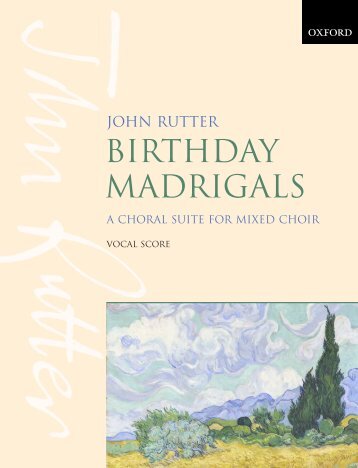
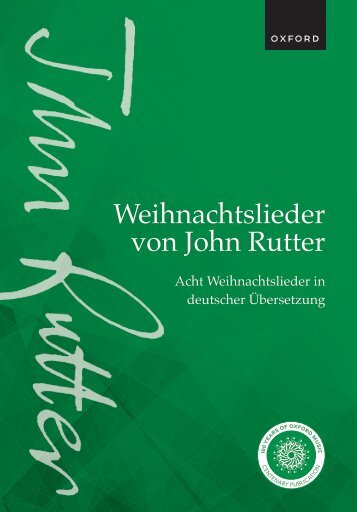
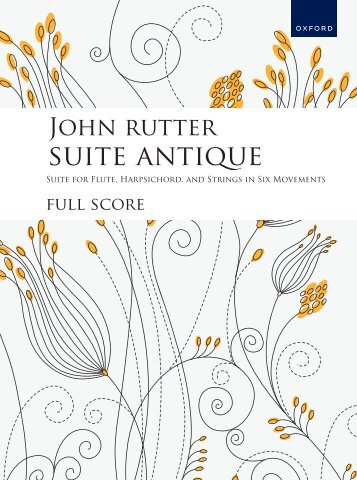
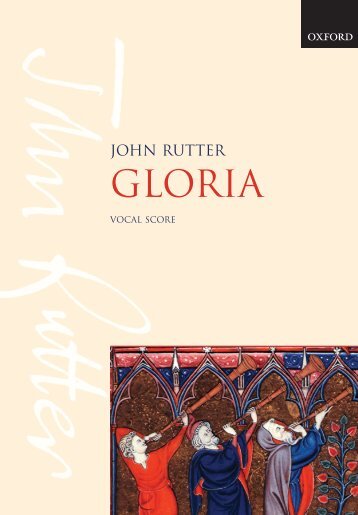
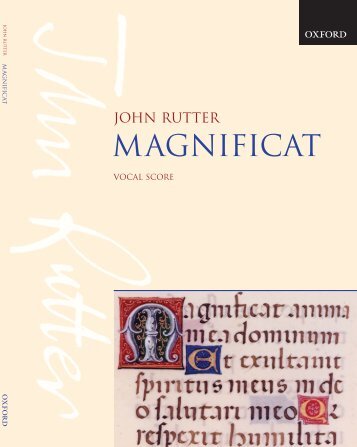
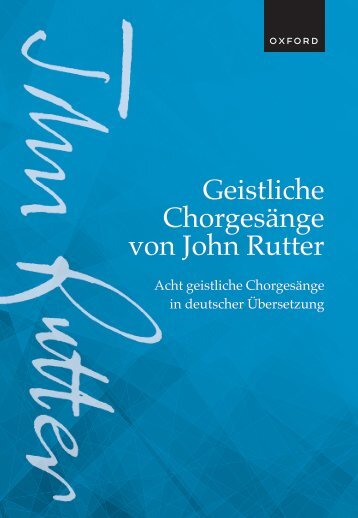
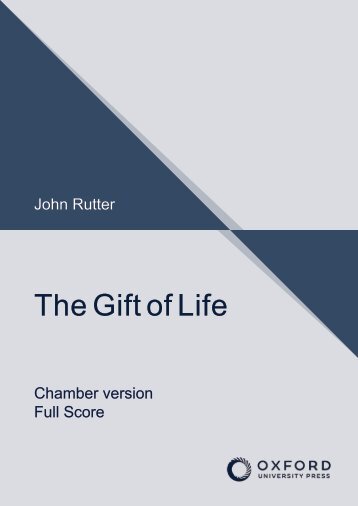
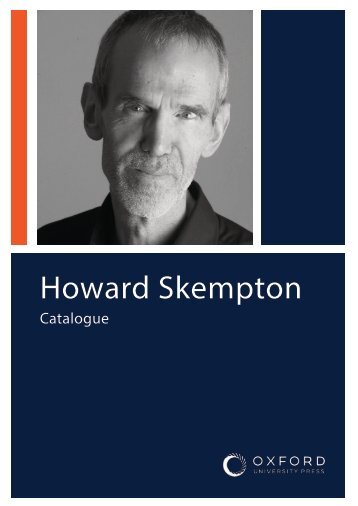

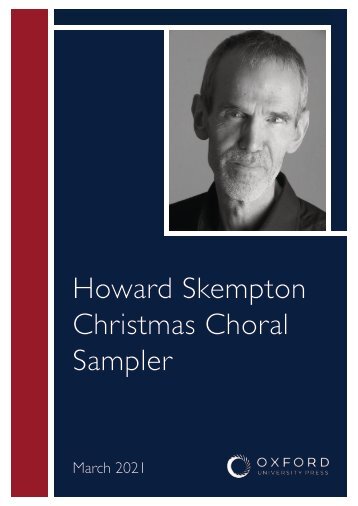
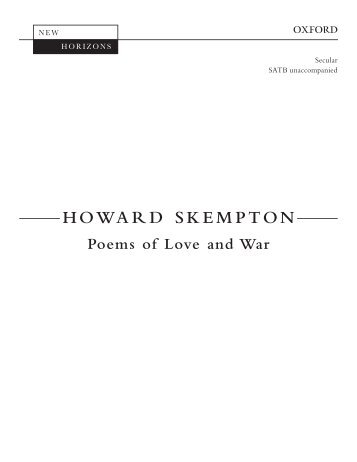


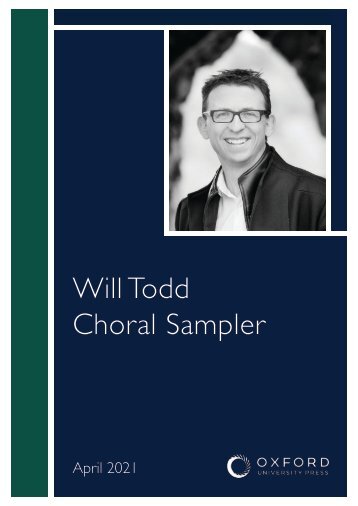
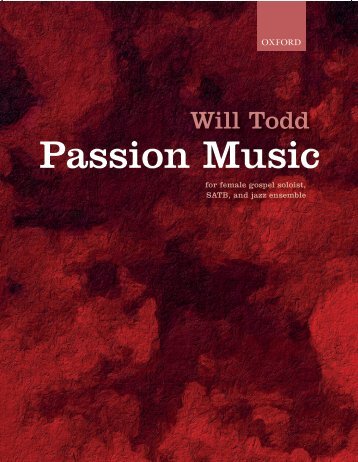
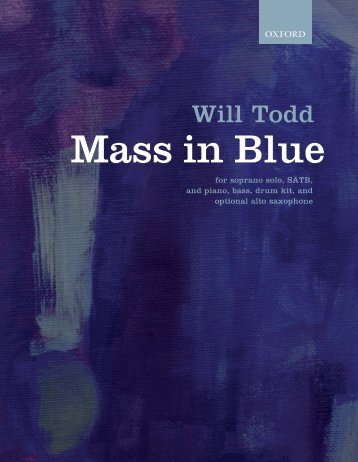
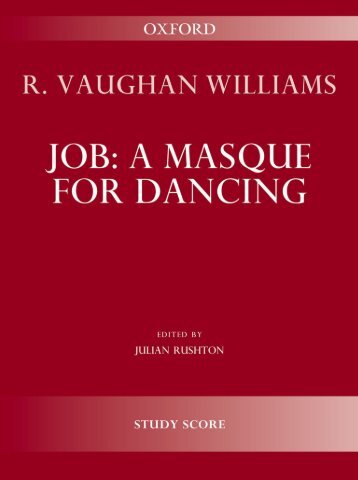
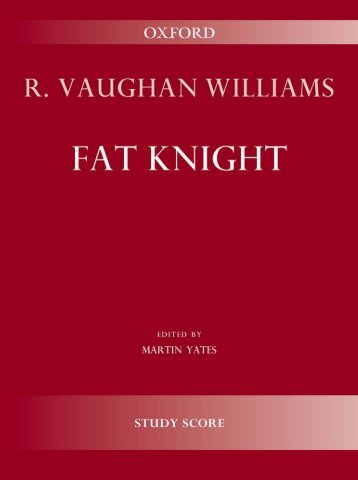
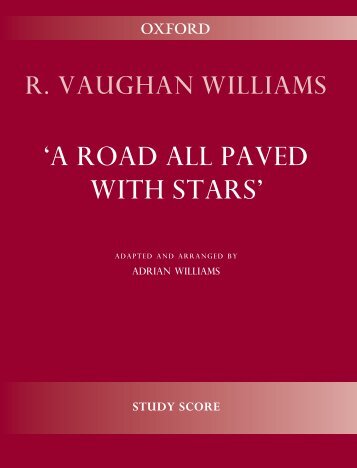
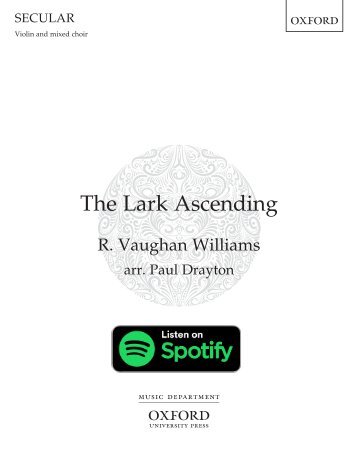
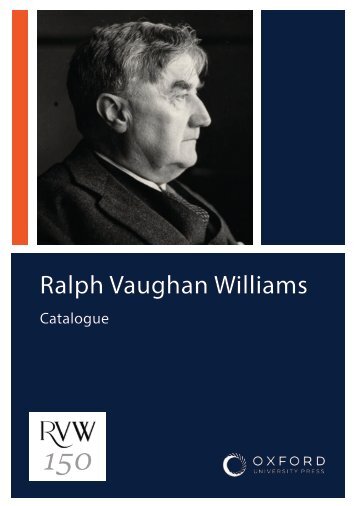
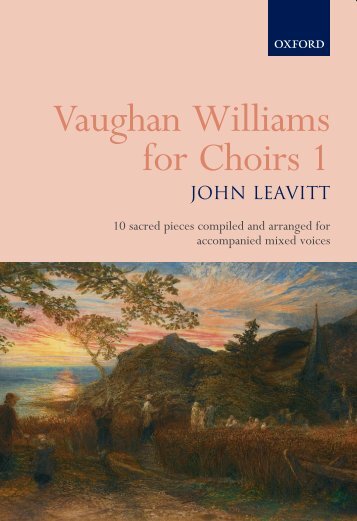
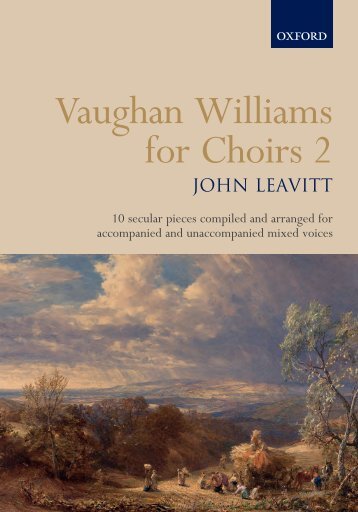

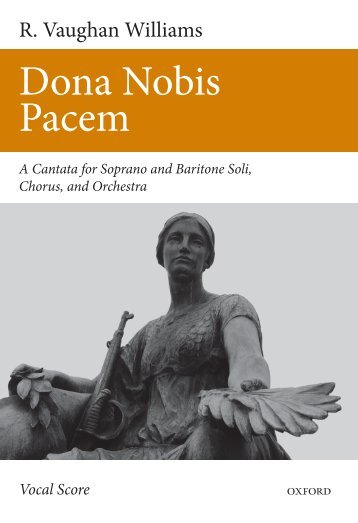
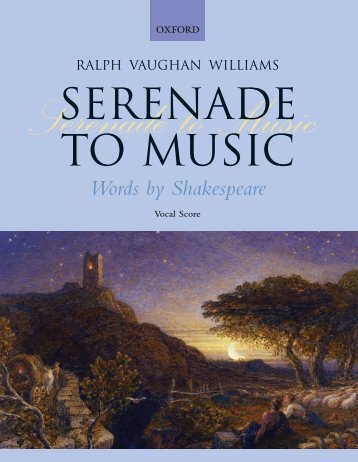
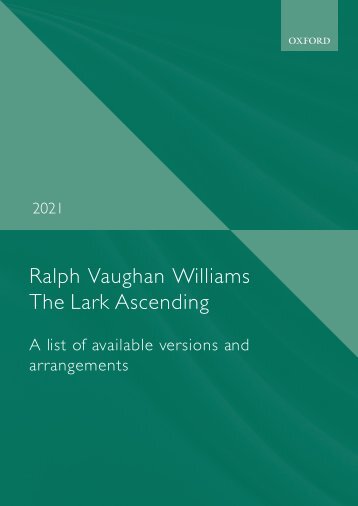

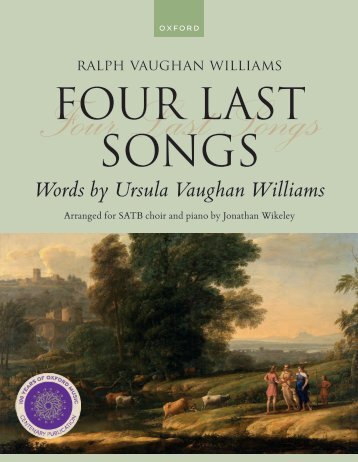

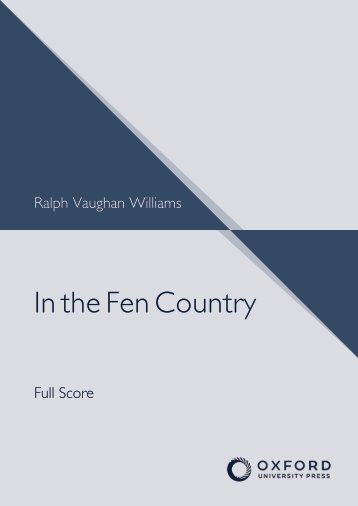
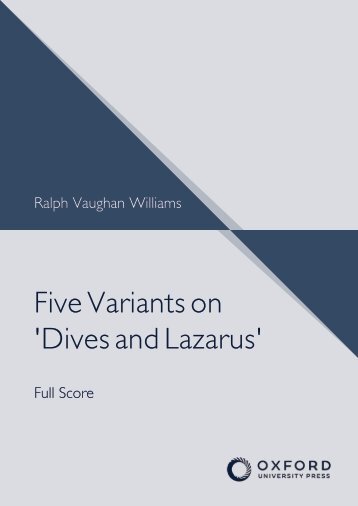
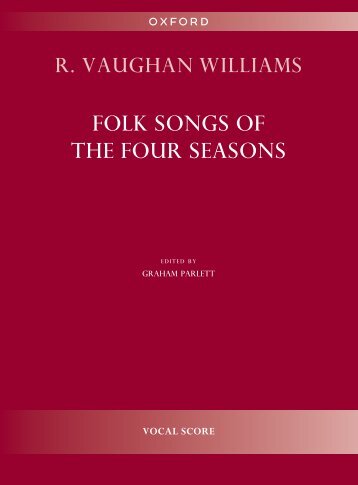



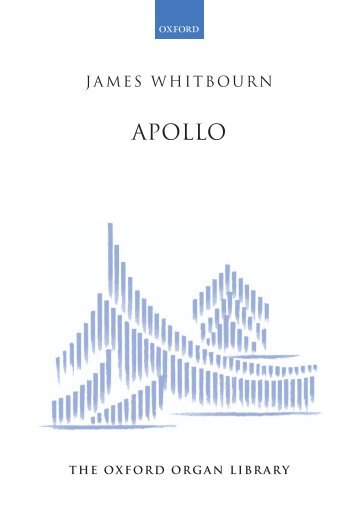
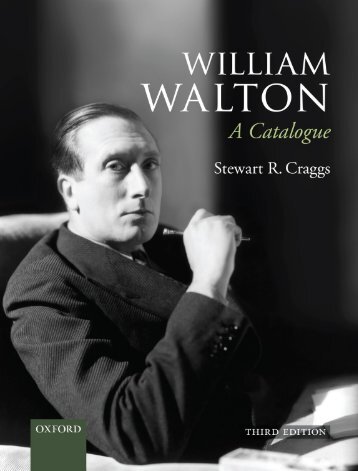



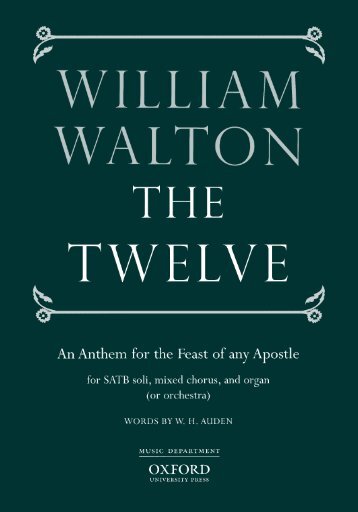
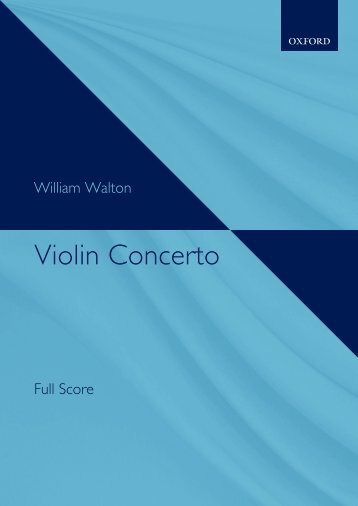








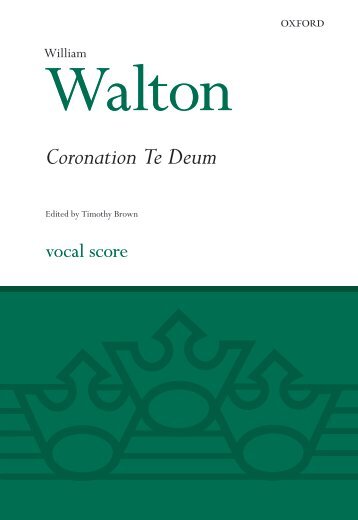

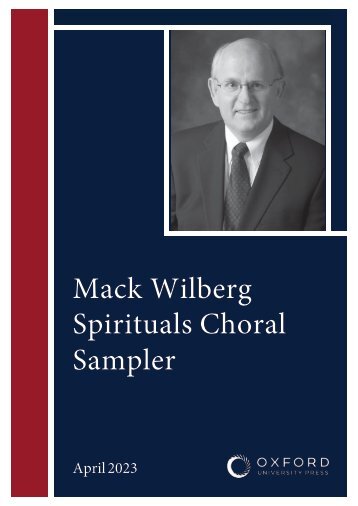
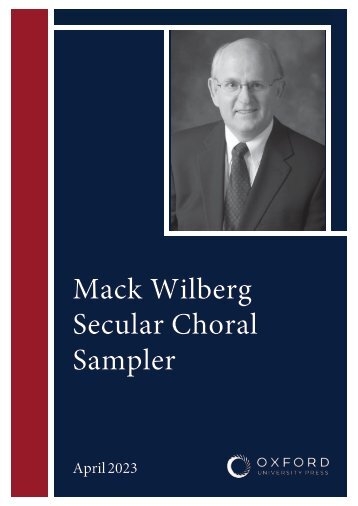




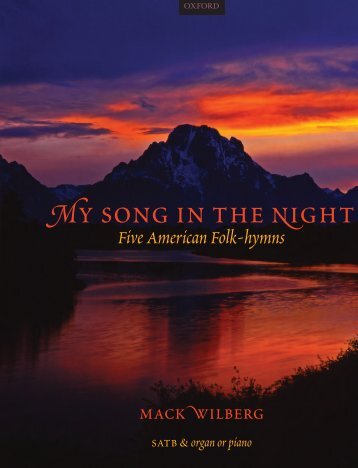
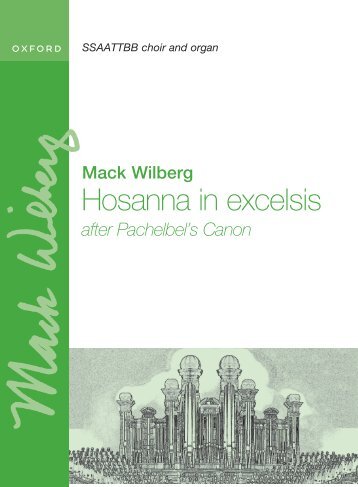


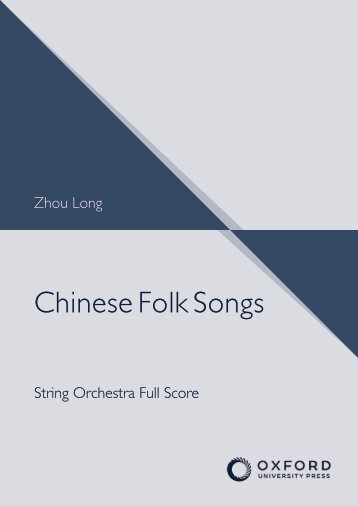

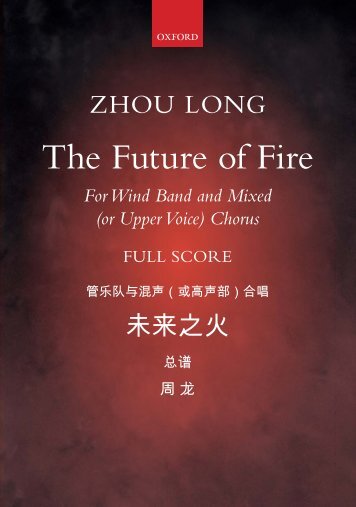





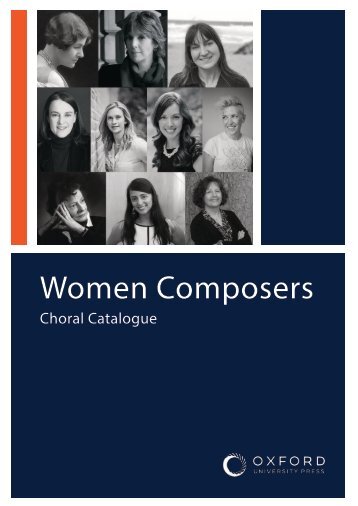
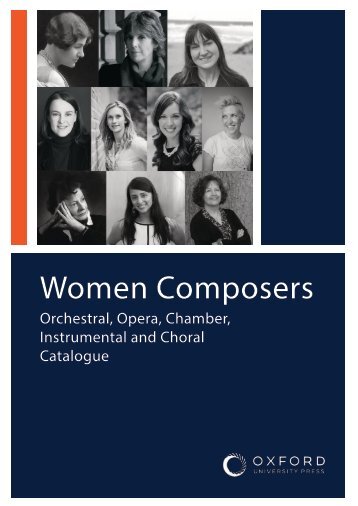
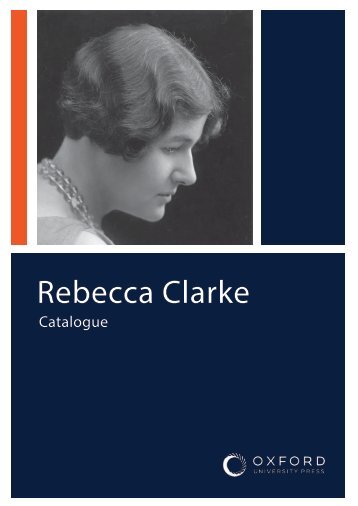

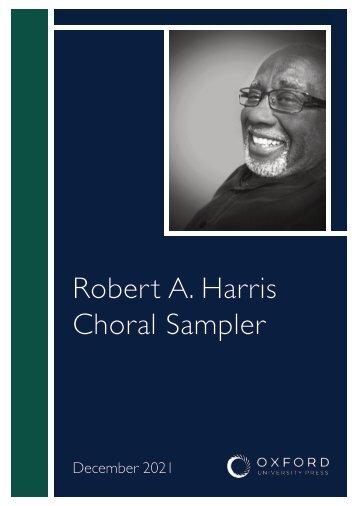
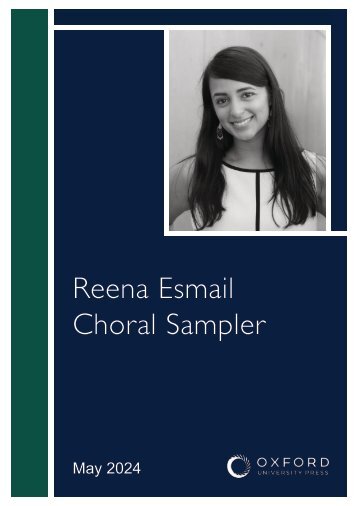
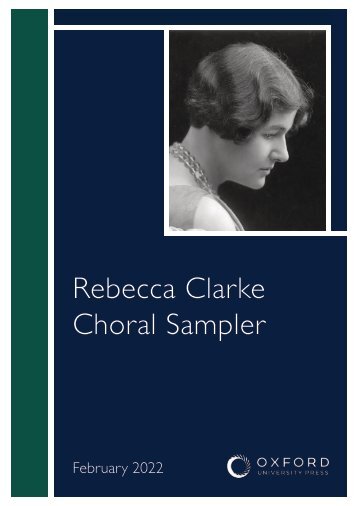
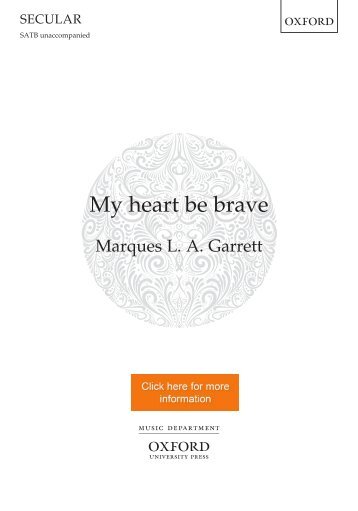
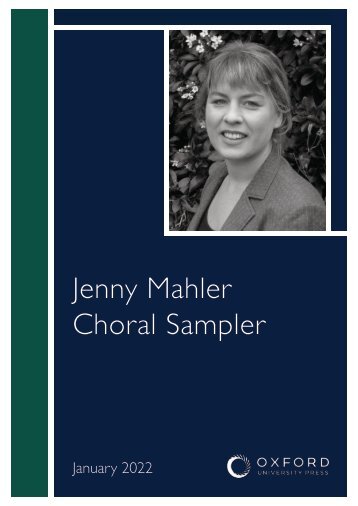
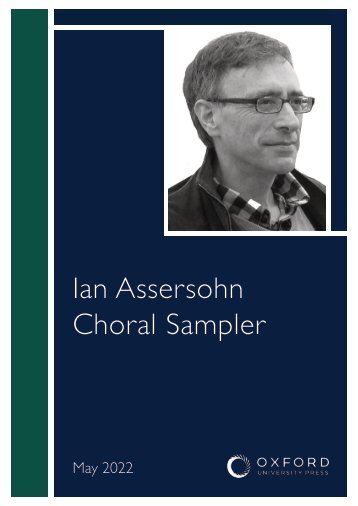
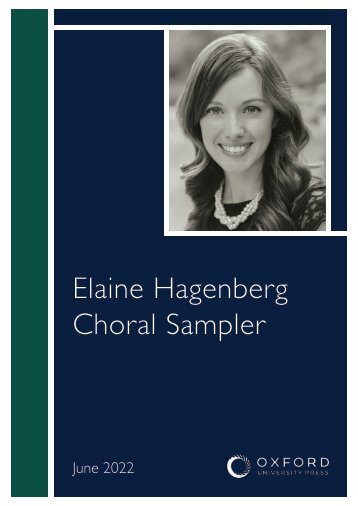
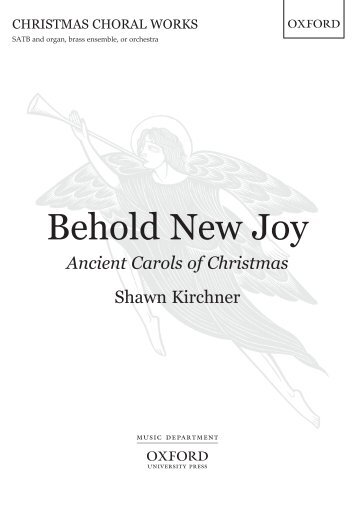
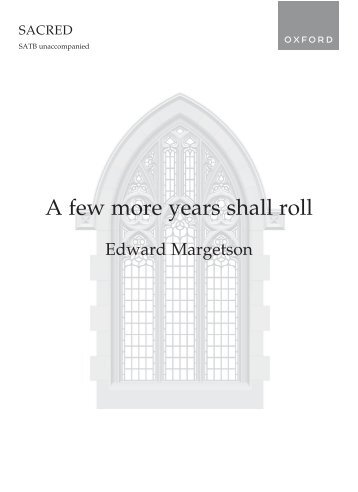
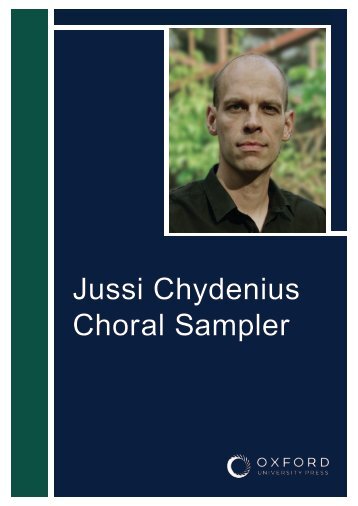


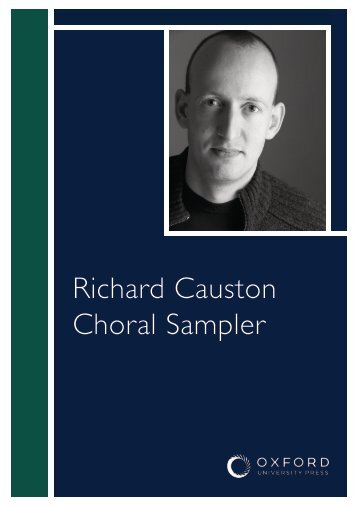
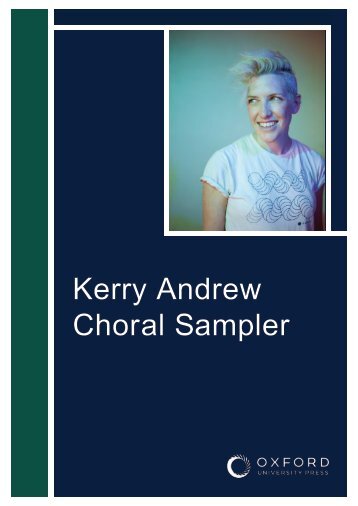
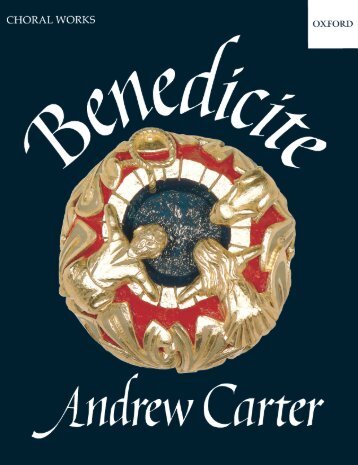
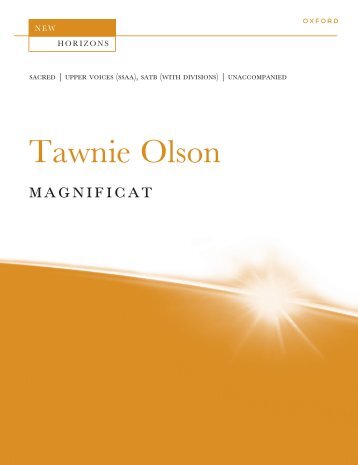


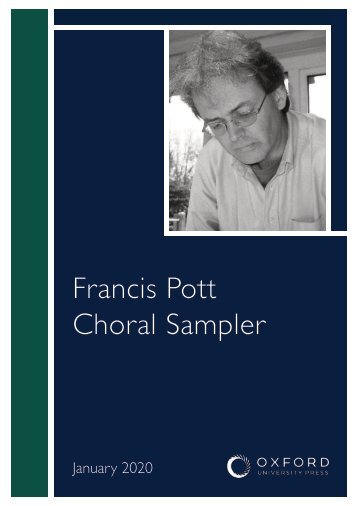

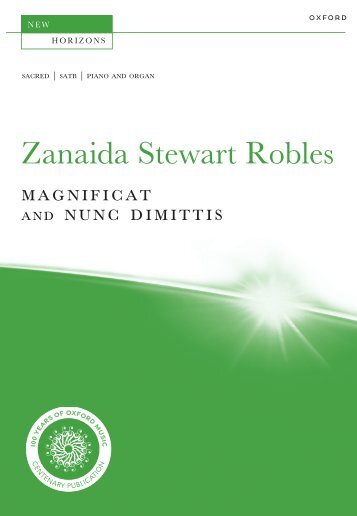
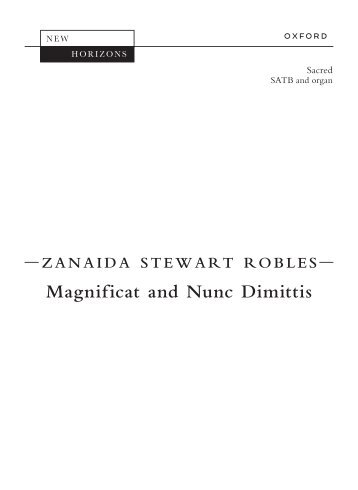
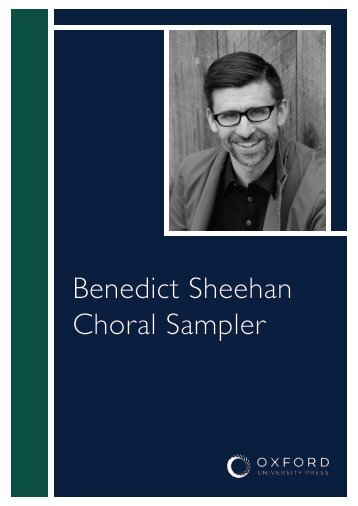
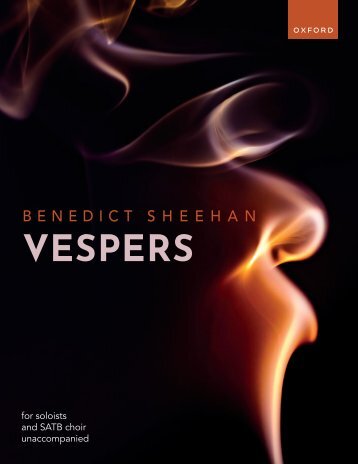
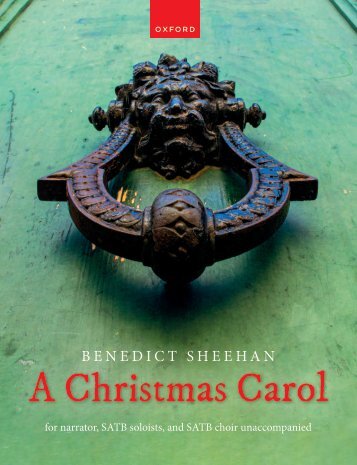

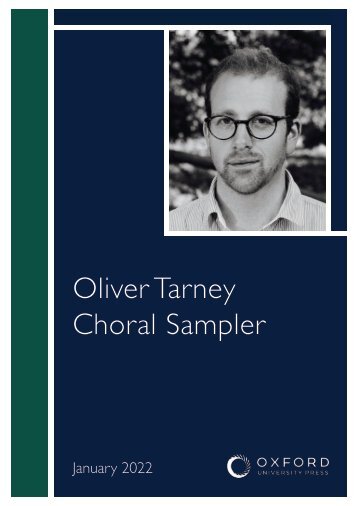
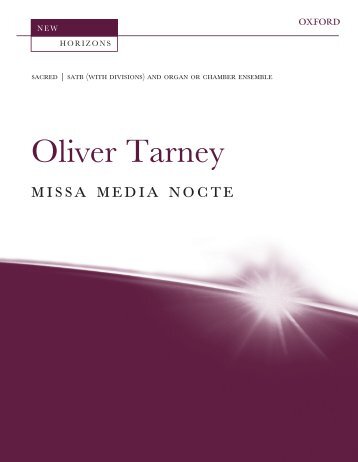
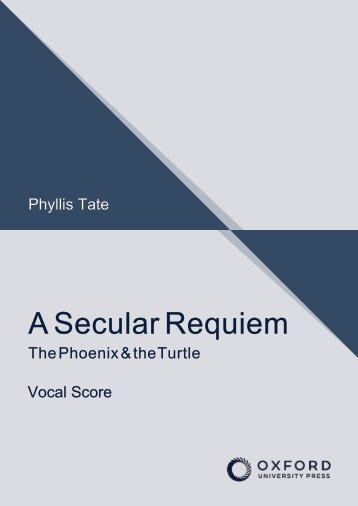
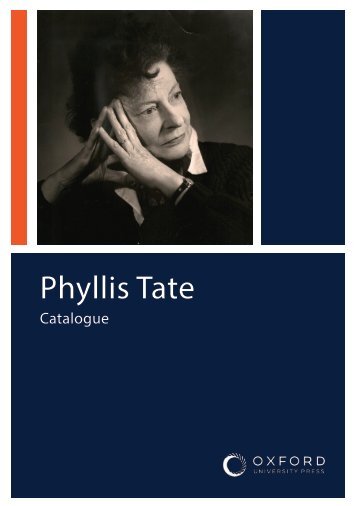
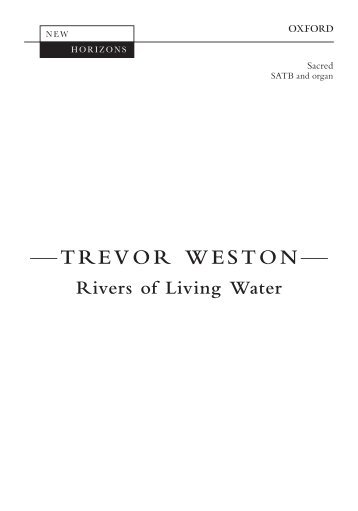
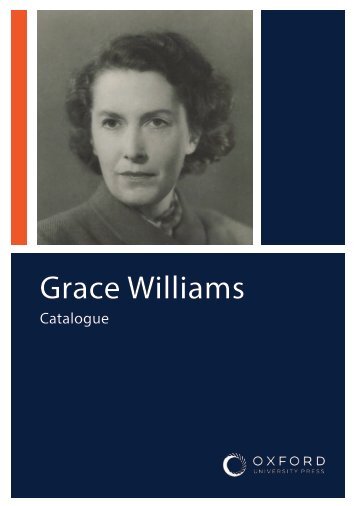
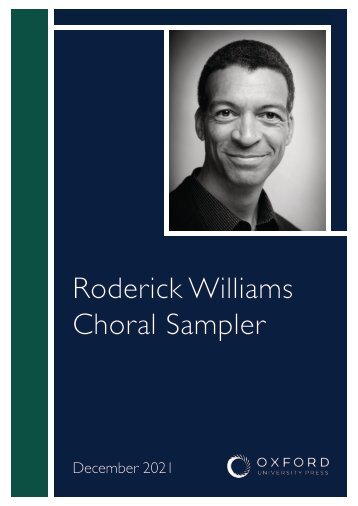
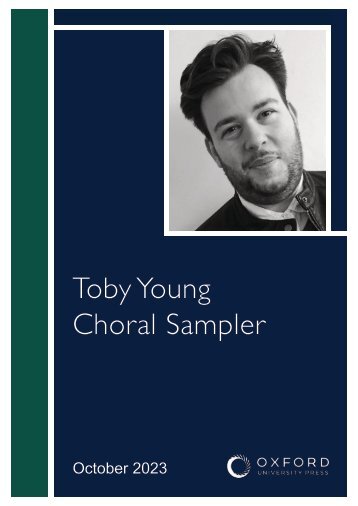

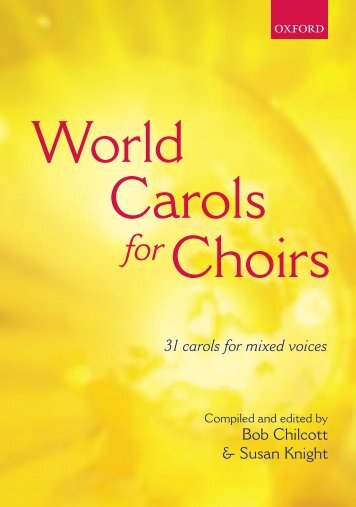
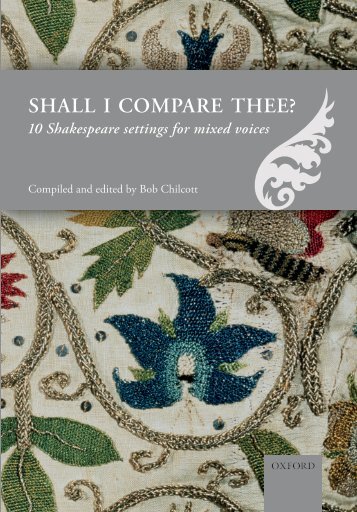
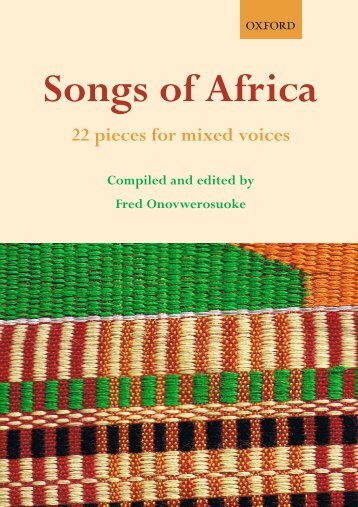


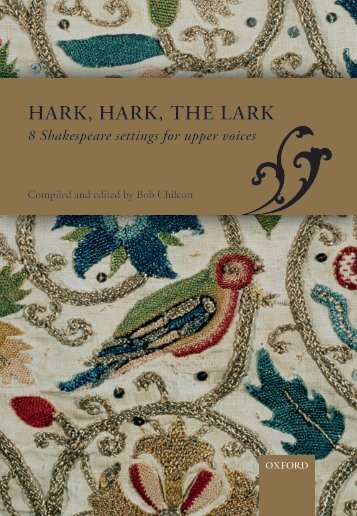
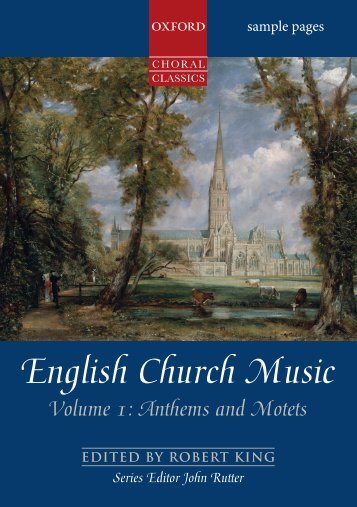
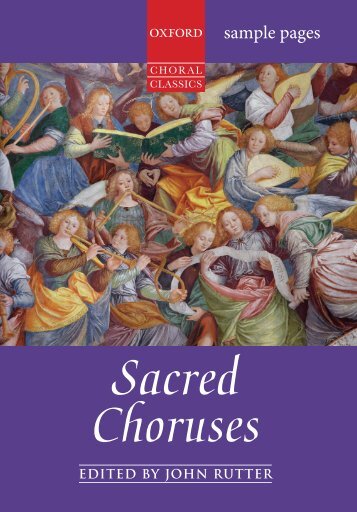

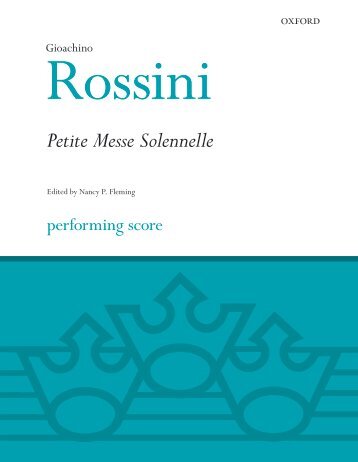
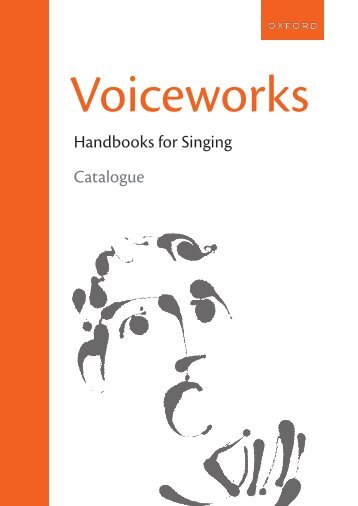
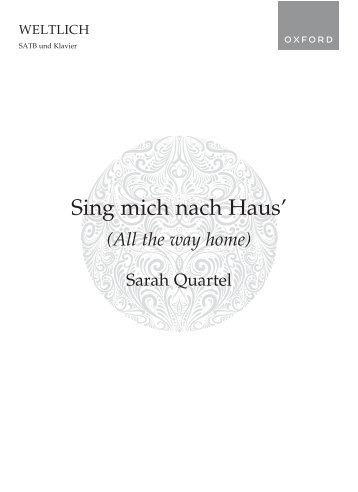
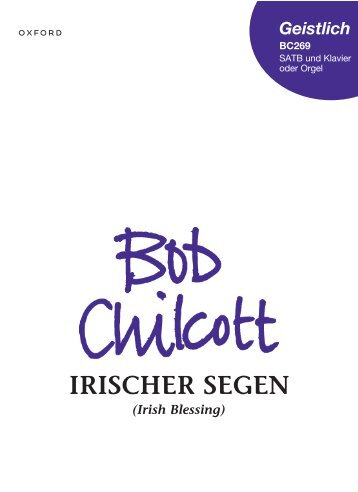

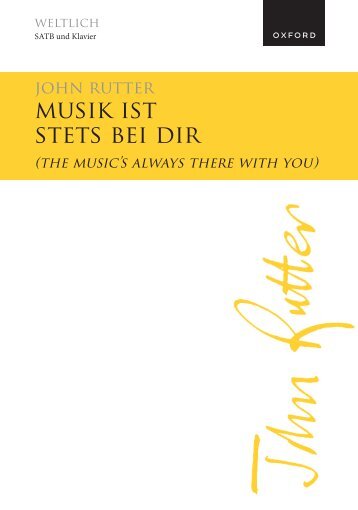
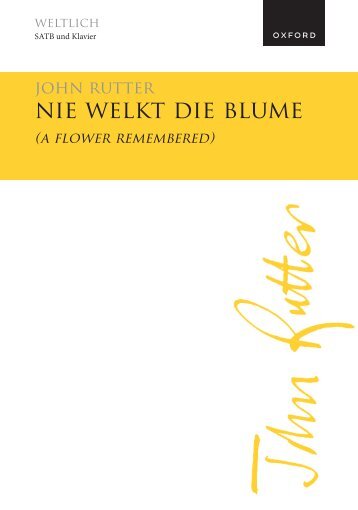

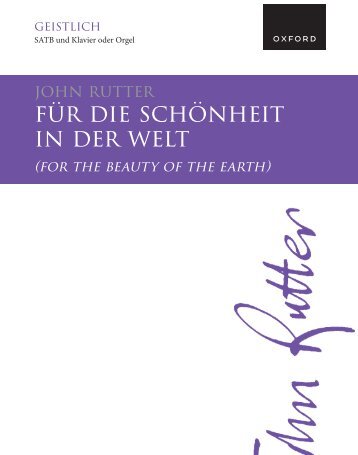
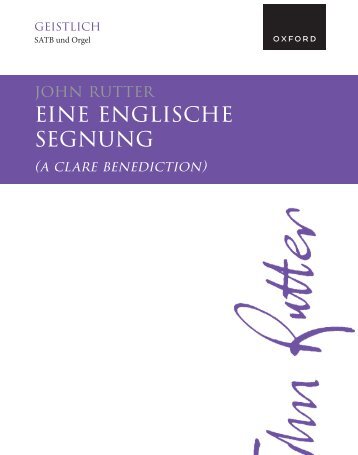

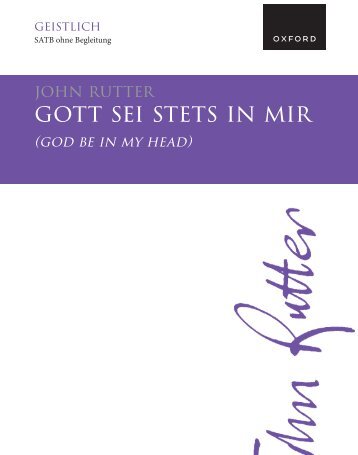
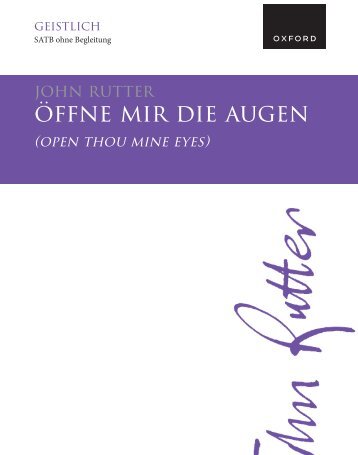

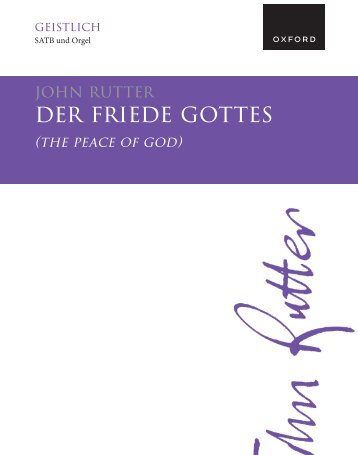
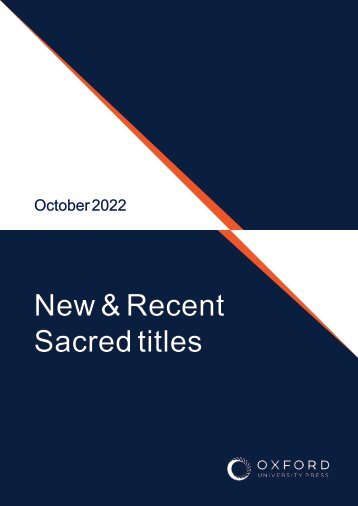

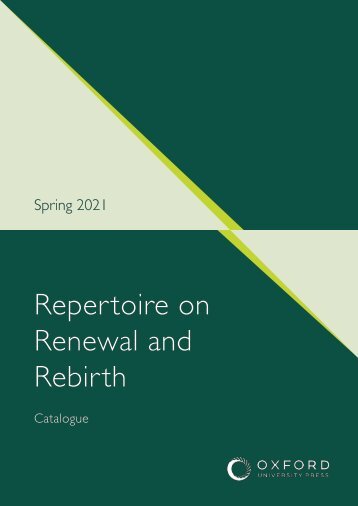
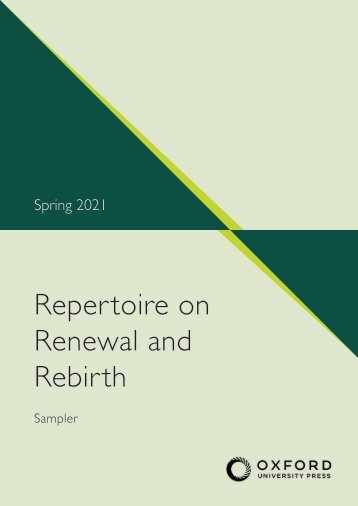
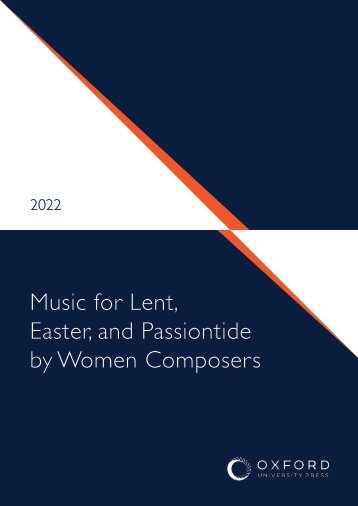
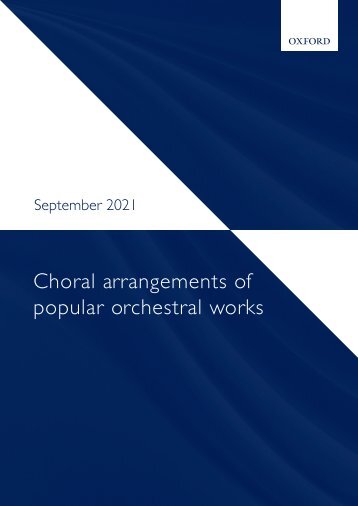
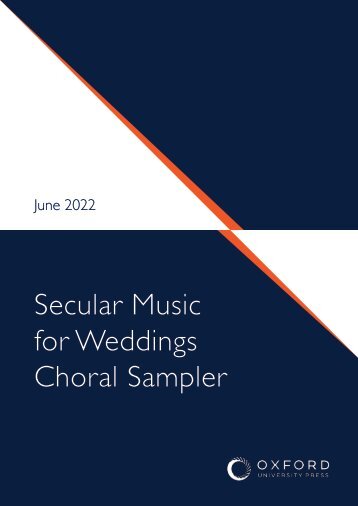

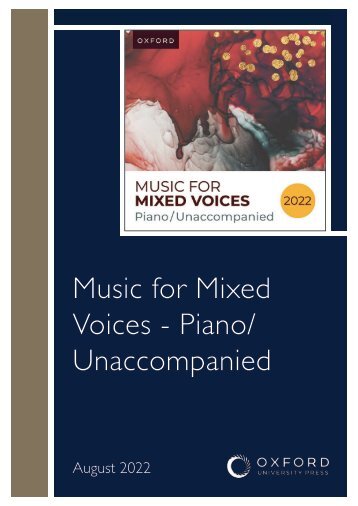
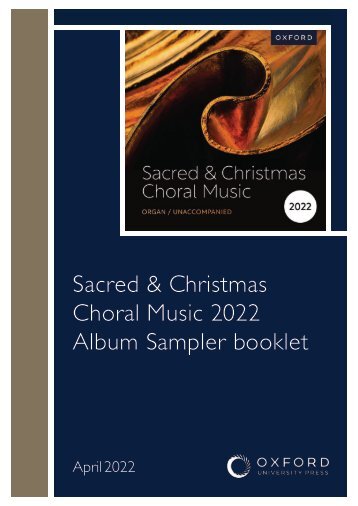
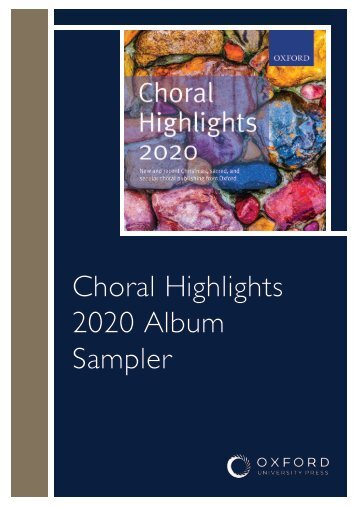
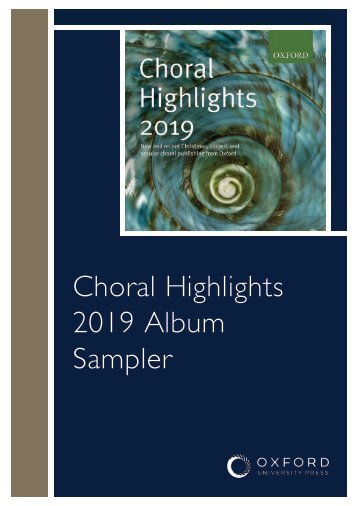
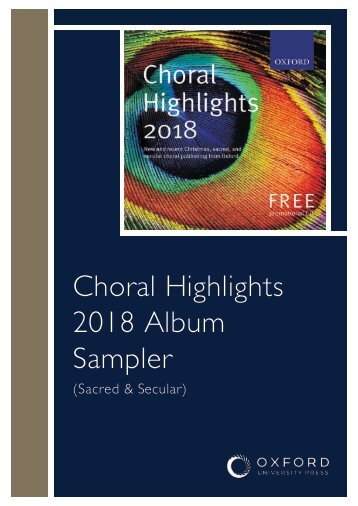


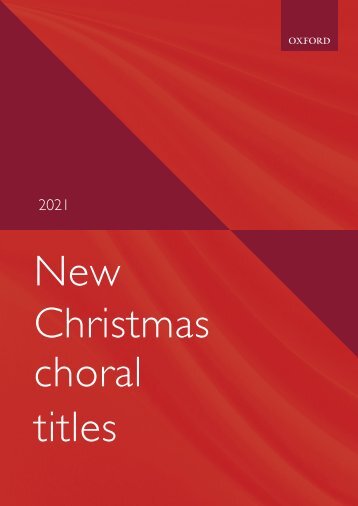

Facebook
Twitter
Email